Fenrir, or Fenrisúlfr, is the giant and infamous wolf of Norse mythology, who was so feared by the Norse gods that they chained him down and put a sword in his mouth to keep him from fleeing.
It is said that “all the warriors of Valhalla” could not defeat Fenrir, and when he ultimately breaks free from captivity in the midst of Ragnarök, he tries to swallow the world whole and challenges Odin the All-Father to a mortal duel.
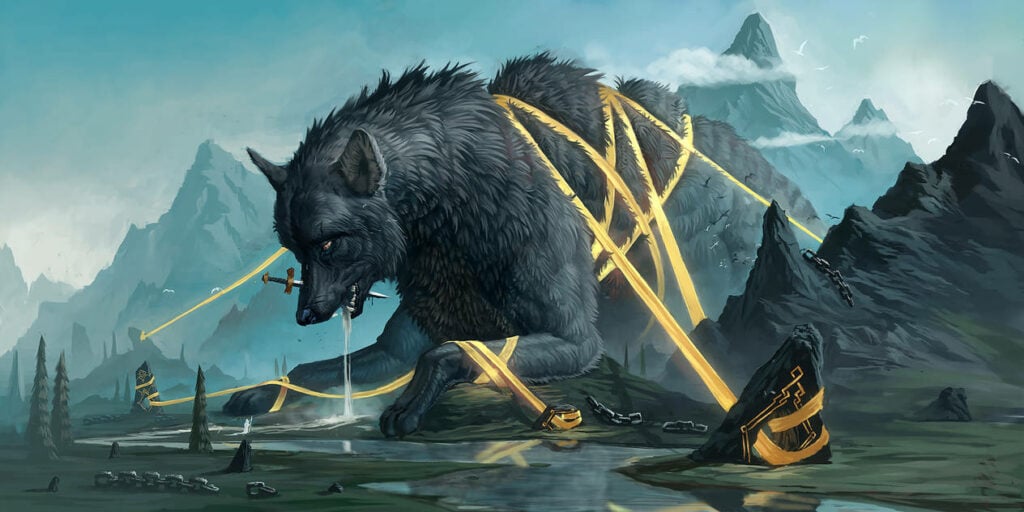
- The Story of Fenrir: The Giant Wolf Who Killed Odin
- Fenrir's Appearance
- Fenrir's Powers and Abilities: What Can He Do?
- The Prophecy: What is Fenrir's Destiny?
- The Binding of Fenrir
- Ragnarök and How Fenrir Breaks Free
- Fenrir vs. Odin: Fenrir Fights and Kills Odin
- Vidar Avenges Odin and Slays Fenrir
- Why Fenrir Is So Important in Norse Mythology
- Archaeological Record Featuring Fenrir
- Fenrir in Modern Times: Depictions in Pop Culture
The Story of Fenrir: The Giant Wolf Who Killed Odin
Fenrir was born of the giantess Angrboda and the mischievous god Loki, and although he is described as little in the beginning, he grew at an alarming rate and soon became too big and ferocious for even the Norse Aesir gods to control.
The gods consulted with each other, and concluded that the only way to stop Fenrir from terrorizing Asgård was to trick him into wearing a magical fetter. They succeeded in their plan, but not before Fenrir bit off Tyr’s arm — that had been placed in his mouth as a gesture of goodwill — as payment for being deceived.
The so-called Gleipner chain held fast until Ragnarök, when Fenrir finally broke free and devoured Odin whole. In what becomes the final battle of Ragnarök, Fenrir is killed by Odin’s son Vidar who avenges his father.
Judging by how the oldest sources describe Fenrir, the wolf was rightly considered one of the greatest enemies of the Æsir, as he was destined to fight and kill Odin himself during Ragnarök.
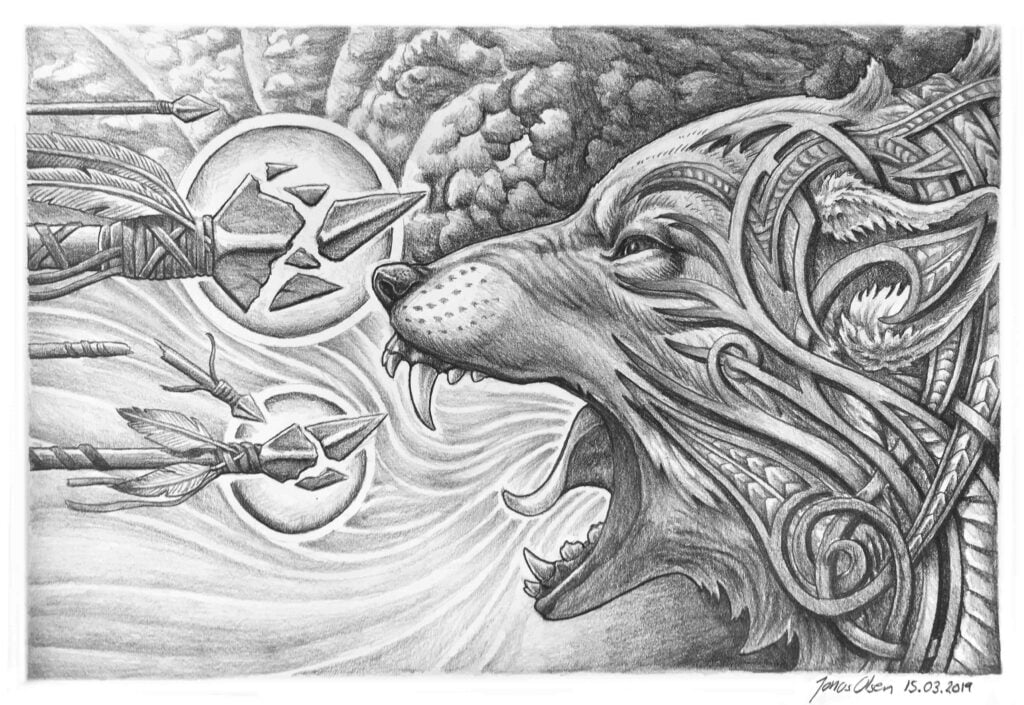
Fenrir’s brothers are Jörmungandr (the Giant Serpent of Midgard) and Hel (the God of the Dead), and he is the father of the wolves Sköll and Hati.
During Ragnarök, Sköll would eat the Sun, while Hati “the Moon-Snatcher” would eat the moon.
If you prefer to get a quick summary via video, here’s one that explains the story of Fenrir as told in the Eddas pretty well:
If you’d rather dive deeper into what the Norse primary sources say about Fenrir on your own, read on:
Fenrir in the Poetic Edda
In the first of two stanzas of Vafþrúðnismál Odin poses a question to the wise jötunn Vafþrúðnir regarding Fenrir:
Much I have travelled, much have I tried out, much have I tested the Powers; from where will a sun come into the smooth heaven when Fenrir has assailed this one?
Odin in Vafþrúðnismál
In the stanza that follows, Vafþrúðnir responds that Sól (a.k.a. Álfröðull) will bear a daughter before Fenrir attacks her, and that this daughter shall continue the paths of her deceased mother through the heavens.
While chained and awaiting Ragnarök, Fenrir is said to have drooled so much that a whole river, Ván, flows from his mouth. This gives him the nickname Vanagandr (”the monster from the Ván river”).
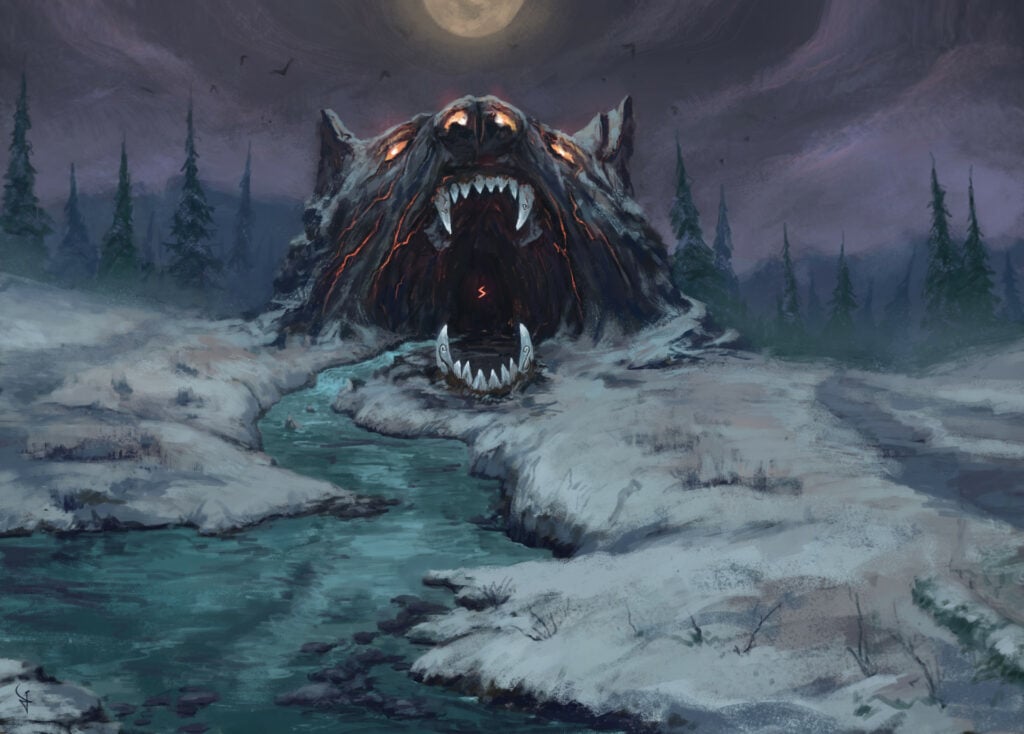
Fenrir in the Prose Edda
Fenrir is first mentioned in the preface of the Prose Edda, where we are told how the world begins according to myth, but also how it ends:
The world’s last day approaches. All bonds and fetters that bound the forces of heaven and earth together are severed, and the powers of good and of evil are brought together in an internecine feud. Loke advances with the Fenris-wolf and the Midgard-serpent, his own children, with all the hosts of the giants, and with Surt, who flings fire and flame over the world.
The Prose Edda, Preface
In chapter 25, the enthroned figure of High tells Gangleri (described as King Gylfi in disguise) about the god Týr.
High says that one example of Týr’s bravery is that when the Æsir were luring Fenrir (referred to here as Fenrisúlfr) to place the fetter Gleipnir on the wolf, Týr placed his hand within the wolf’s mouth as a pledge.
This was done at Fenrir’s own request because he did not trust that the Æsir would let him go.
And when the gods knew that these three brothers and sisters were brought up in the house of Joth, and they also showed by divination that by these brothers and sisters they would suffer much harm and misfortune; for all seemed much evil to be expected of them on the mother’s side, and still worse on the father’s side, Allfather sent to the gods to take the children and bring them to him.
The Prose Edda, Chapter 34
By the way, if you're looking for some historically accurate viking apparel and wall art, I've designed a large collection of Norse wall art and apparel based on and inspired by actual archeological finds from Viking Age Scandinavia.
Here’s a video that explains what we know of Fenrir’s origins and children according to the Old Norse sources:
How Fenrir Become so Feared
Fenrir is depicted as one of the most feared and ferocious creatures in Norse mythology. He was the son of Loki, the god of mischief, and a giantess named Angrboda, who according to the Edda was almost as bad as Loki.
On top of this, he is prophecized to devour Odin himself, which is enough to instill fear in anyone from the Norse world.
As a child, Fenrir grew so quickly that he could not be contained by any chain or cage, which greatly alarmed the gods, who decided to bind him with a magical chain called Gleipnir.
Gleipnir was made from six impossible things: the sound of a cat’s footfall, the beard of a woman, the roots of a mountain, the sinews of a bear, the breath of a fish, and the spittle of a bird.
Why Fenrir Became A Wolf
So why did Fenrir become a wolf? Well, according to the Prose Edda, Fenrir’s mother Angrboða has mothered many giants, who all take the shape of wolves, and it is also from these giants that all wolves in the real world descend.
Fenrir’s Appearance
Fenrir is described as a giant, ferocious wolf — with a mouth that can swallow anything whole. His teeth are long and sharp, and when he is fully grown he can devour the entire earth.
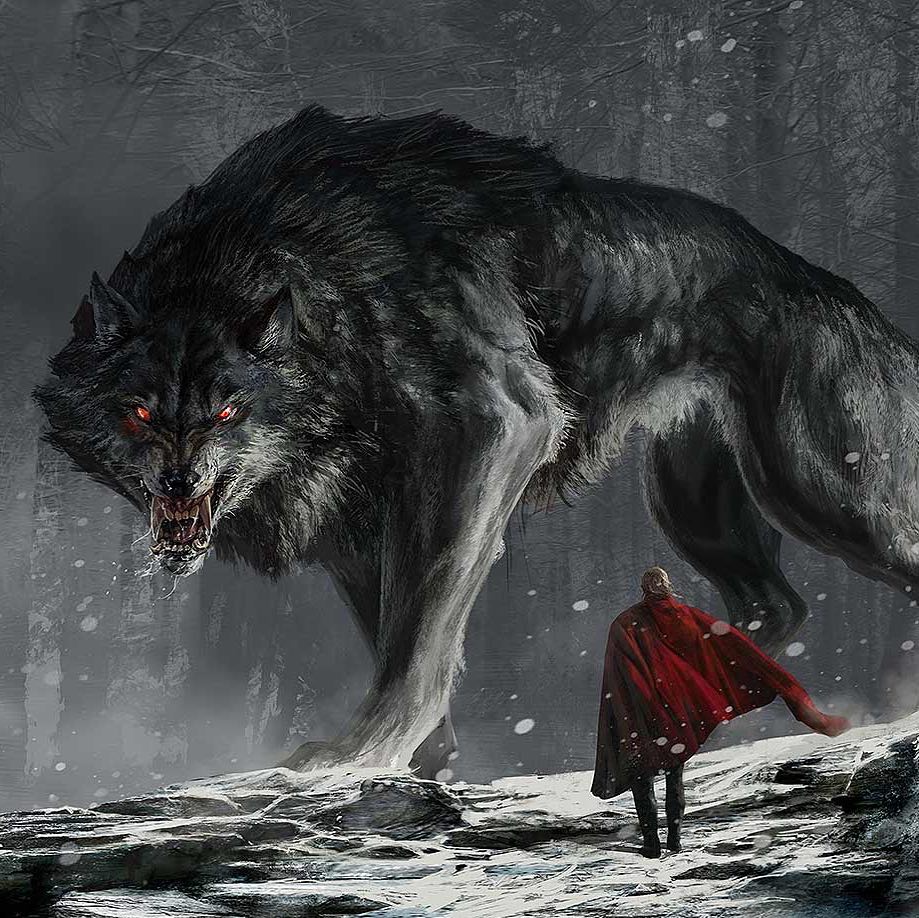
Fenrir was born during a time when the Æsir (gods) and Jötunn (giants) were at war with each other.
As he was the product of the most evil of gods, Loki, and a Jötunn who was almost as bad as Loki, Angriboda — the gods knew that Fenrir would one day grow to be a threat to them.
So they tried to bind him down, but no matter what they did, they could not control him. The only person who could talk to Fenrir was Tyr, the god of war, who offered his hand to Fenrir as a sign of trust.
When the gods finally managed to bind him with a magical chain (Gneiper), the giant wolf bit Tyr’s arm off in fury.
How Big Was Fenrir?
Fenrir is described as a massive and ferocious wolf in Norse sources, so big that he could easily swallow the earth whole, as well as create a big river with his drool.
He is also described as being so big and dangerous that all the warriors of Valhalla could not hold him back, and considering he ends up devouring Odin himself, I’d say he is among the biggest creatures of Norse Mythology.
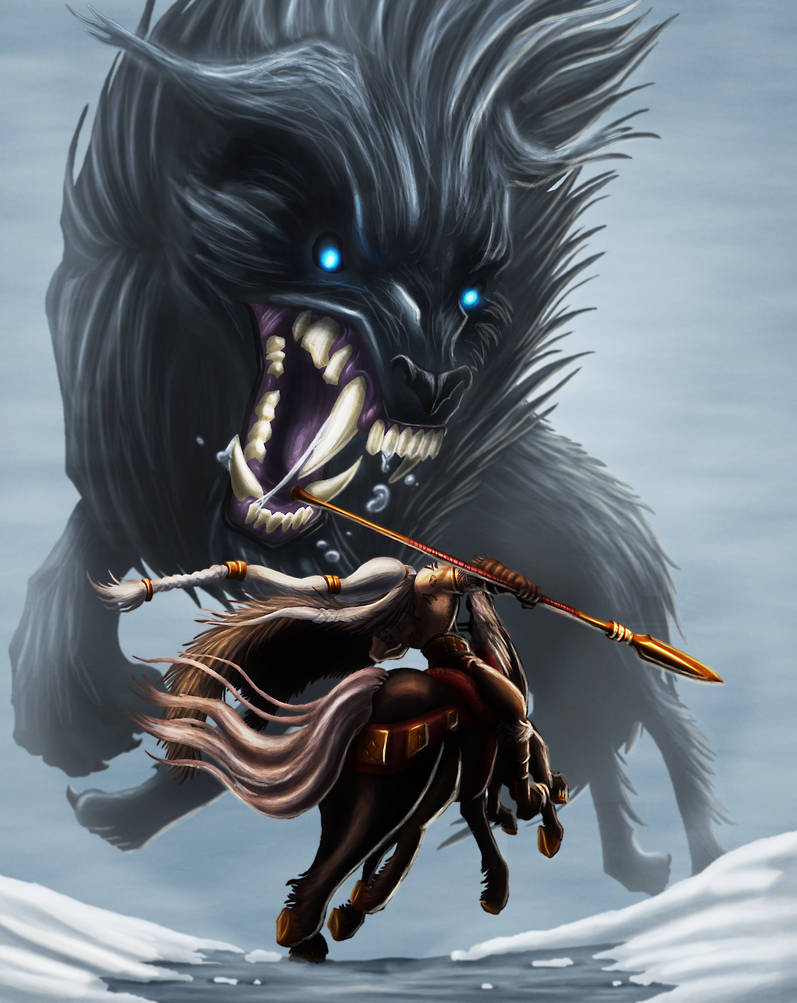
Fenrir’s Powers and Abilities: What Can He Do?
Fenrir is said to be able to kill anything, even the gods themselves. He is deemed too dangerous to roam free, so the Norse Æsir gods trick Fenrir into being chained up, and put a magic spell on the material holding him down.
But even the gods can’t hold him down, and when Ragnarök comes along he ultimately breaks free and devours Odin himself.
Since he can kill Odin the All-father — the most cunning and powerful of all the Aesir gods — Fenrir would be among the most powerful creatures in Norse Mythology.
He is definitely a force to be reckoned with and is rightfully seen as one of the most feared creatures in Norse mythology according to the sagas.
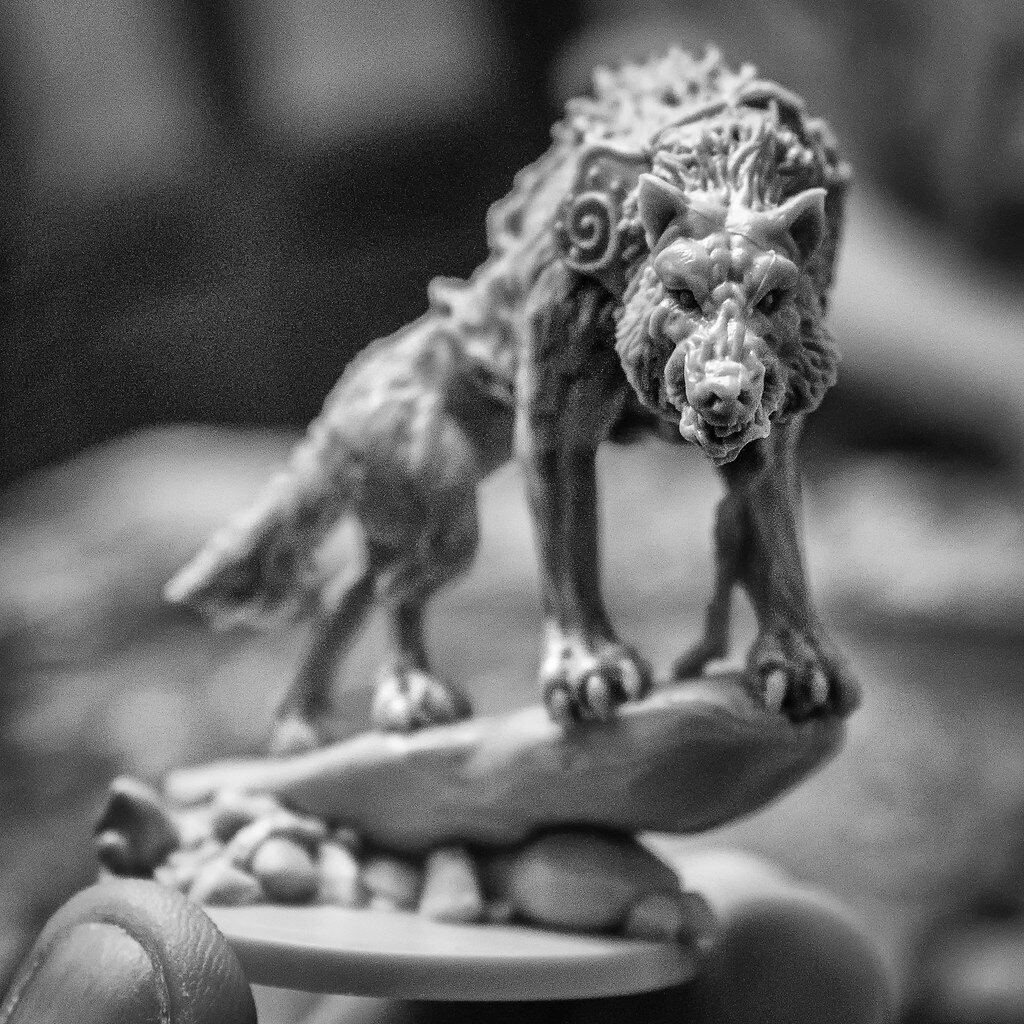
The Prophecy: What is Fenrir’s Destiny?
In Gylfaginning, the Æsir gods conclude that as Fenrir is the son of Loki and Angrboda, and as he is raised in Jötunheim (the hall of the giants), there is “great prospect of ill, first from the mother’s blood, and yet worse from the father’s“.
This leads them to prophesize that Fenrir will bring “great misfortune” upon the Æsir (Gylfaginning chapter 34).
The misfortune they refer to is brought upon them at the advent of Ragnarök, when the shaking ground breaks Fenrir free from his chains and sends him out on a rampage which ends with him devouring Odin.
Gylfaginning chapter 34
So in the end Fenrir’s destiny is to kill Odin, which in turn causes Odin’s son Vidar to kill Fenrir, after which the reign of the Æsir ends.
This can be seen as a self-fulfilled prophecy by the Æsir in a way, as although Ragnarök was foretold by the Norns, it was partly caused by the actions of the gods themselves in dealing with Loki’s children.
The Binding of Fenrir
Due to his size, sinister demeanor, and seemingly limitless power, the gods feared for their safety and decided to chain Fenrir down.
But the more they tried to tame him, the more feral and wild he became, so they had to resort to trickery, in the end, to keep him under control.
How Fenrir Was Ultimately Chained Down
The only thing that could hold him was a material called Gleipnir, made by the Dwarfs of Svartalfheim and consisting of six impossible things:
- The sound of a cat’s footfall
- The beard of a woman
- The roots of a mountain
- The sinews of a bear
- The breath of a fish
- The spittle of a bird
Tyr, the god of war, had put his right hand in Fenrir’s mouth as a sign of good faith while the other gods worked on chaining him to the ground.
But when Fenrir realized he was tied down with Gleipnir, and the other gods laughed at him for being deceived so easily, he became furious and bit Tyr’s arm off.
This prompted Odin to put a magical sword through Fenrir’s mouth in order to hold his jaw open, so that he could bite no more.
Fenrir remained chained up for years, but he continued to grow larger and stronger, and the drool from his mouth formed a river called Ván.
Here is a decent video explaining how Fenrir was bound according to the myth:
Ragnarök and How Fenrir Breaks Free
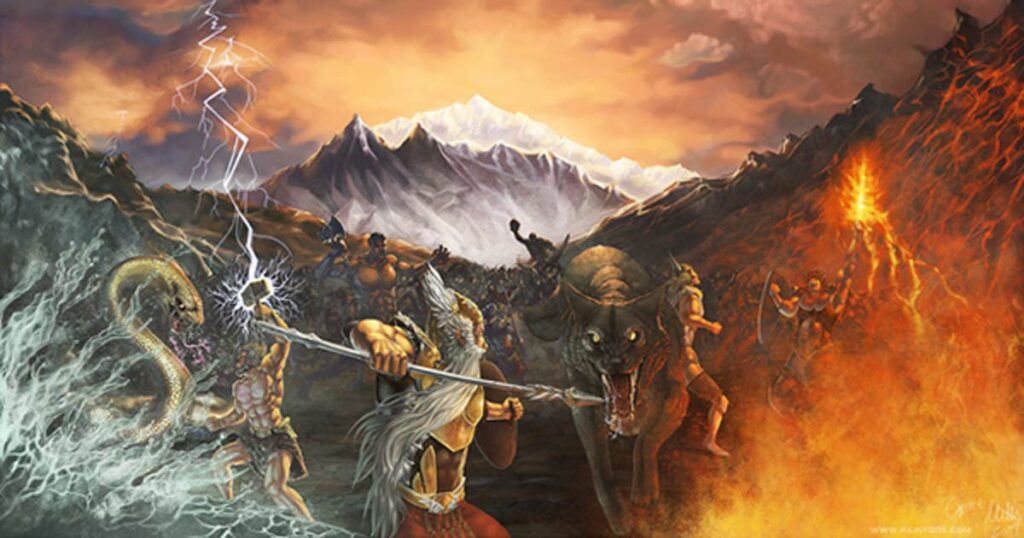
Fenrir stayed chained until Ragnarök, when the chain that held him down was broken by the ground shaking, and he managed to break free.
The fenrisulfr comes forth with its mouth open, so that its upper jaw touches the sky, and its lower jaw the earth. If there were room for more, he would open up his jaws even more. Fire sparks from his eyes and nostrils.
The Prose Edda, chapter 5
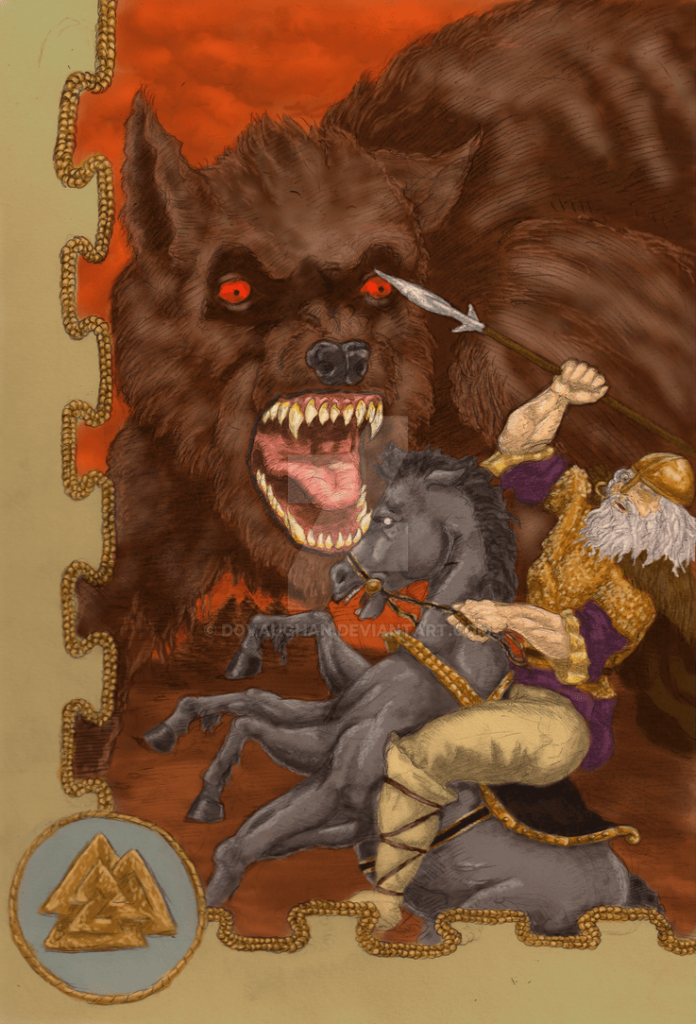
Fenrir then went to the battlefield where he fought Odin, biting at the god’s neck and eventually swallowing him whole. But let’s not get ahead of ourselves, more on that in the next section.
Ultimately, and in an act of revenge, Fenrir was killed by Vidar, Odin’s son, who stabbed him in the heart with his sword. Still, it was too late, as when Fenrir was cut down the old world ended and a new world order begins.
We’ll further explore this chain of events in more detail in the sections to come.
Fenrir vs. Odin: Fenrir Fights and Kills Odin
In the Prose Edda, Snorri Sturluson recounts Fenrir’s murder of Odin, which occurred during a great battle between the gods and the giants.
From Völuspá, chapter 53:
A second suffering for Lin then comes, when Odin goes Against the wolf to fight, and the bell of Beles bane against Surt; then shall fall Friggs' beloved
From the Prose Edda, Gylfaginning chapter 51:
Odin rides first with the gold helmet and a fair birnie, and his spear, which is called Gungnir. He shall go forth against Fenris-Wolf.
And a little later in the same chapter:
The Wolf shall swallow Odin; that shall be his ending.
While Odin was fighting Fenrir, his son Thor fought the Jormungandr, the Midgard Serpent, so he was unable to help his father as he was slain by Fenrir.
Vidar Avenges Odin and Slays Fenrir
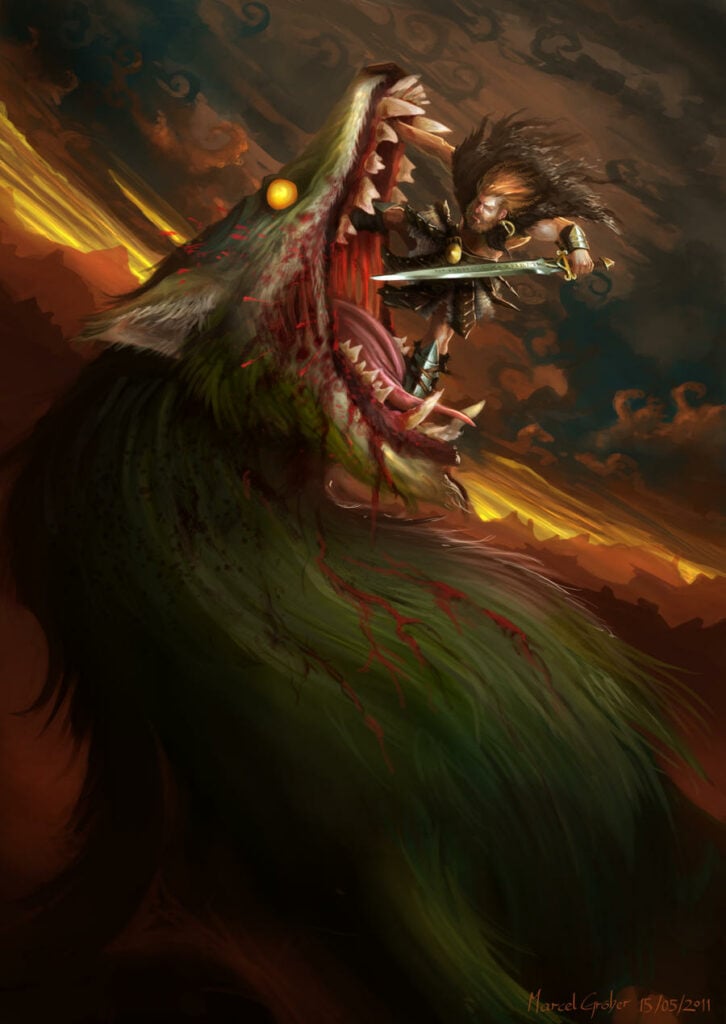
After Fenrir had swallowed Odin, and Thor had fallen dead after being poisoned by Jörmundgandr, Vidar leapt up to the wolf and held his lower jaw with his foot, while stabbing him with his knife.
From Gylfaginning Chapter 51:
With the other hand Vidar seizes the wolf, in the upper jaw, and tears the gap. Thus the Fenrisulf perishes.
Is Fenrir immortal?
Despite possessing enormous strength and being able to slay Odin himself, not even Fenrir is immortal in the end — a prominent characteristic that separates Norse gods from deities in other mythologies (such as Greek mythology for example, where all gods are immortal).
Why Fenrir Is So Important in Norse Mythology
Fenrir is first and foremost the biggest symbol of fear in Norse mythology. His very name means “fen-dweller” or “marsh-dweller”; a creature that lurks in the dark places, ready to pounce on his unsuspecting prey.
He is also associated with the end of the world, when he will break free from his chains and send his sons to devour the sun and moon, while he will try to swallow the earth.
This event will coincide with Ragnarök, the final battle between good and evil, where Fenrir will kill Odin the All-father, the most powerful and wise of the Æsir gods.
So just like his father Loki, Fenrir is a god who initially spends time among the other gods, only to be cast out by them due to fear and mistrust. He returns at the end of times to destroy them, only to be destroyed himself as a younger generation of gods, among them his slayer, emerges from the ashes and establishes a new world order.
Archaeological Record Featuring Fenrir
We know about the myth of Fenrir not only from the Norse sagas, but also from numerous archaeological finds dating back to the Viking age, such as runestones and jewelry.
The Tullstorp Stone
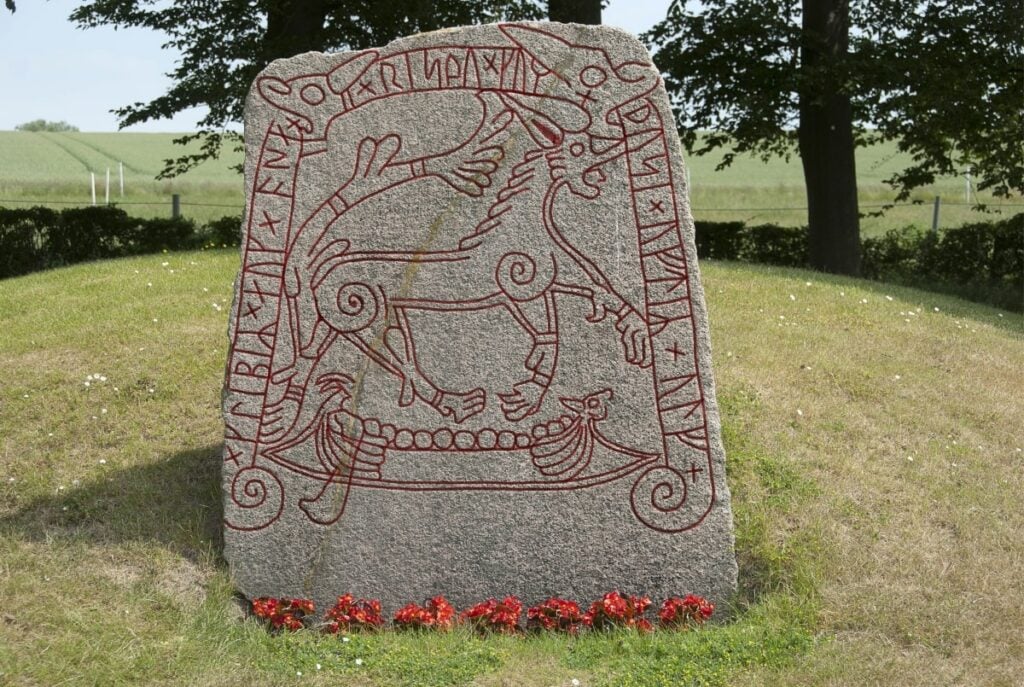
Thorwald’s Cross
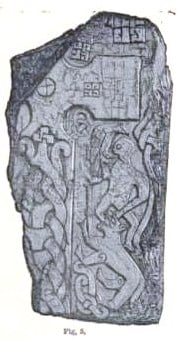
Gosforth Cross
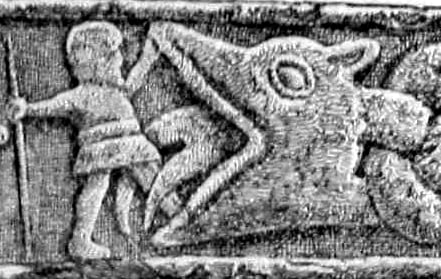
Ledberg stone
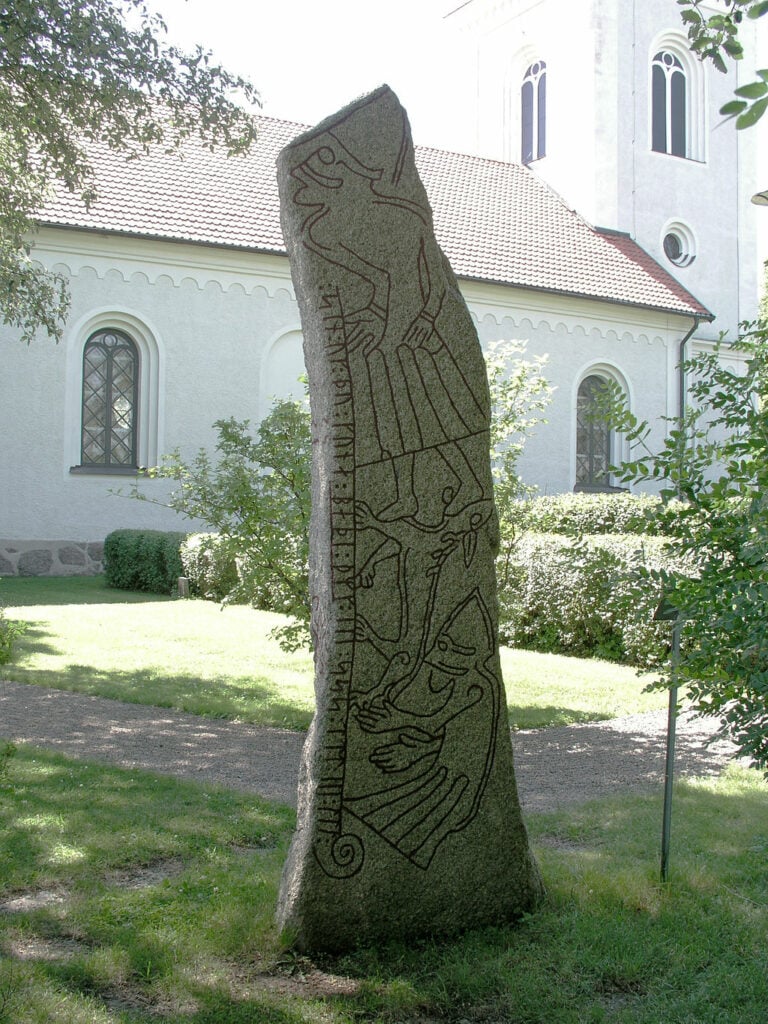
Fenrir, Vidar & Odin on Runestone TB GG9730
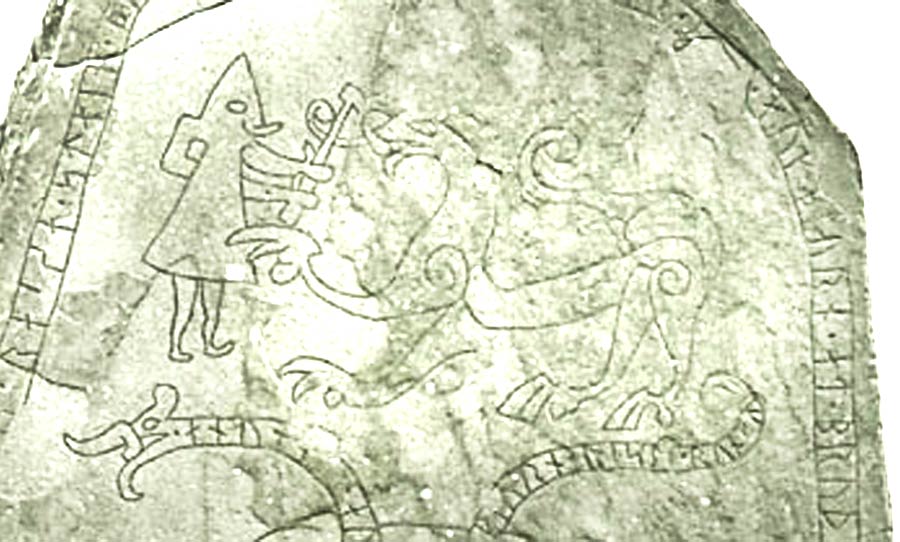
Photo: TB GG9730 is licensed under CC BY-SA 4.0.
Fenrir on Jewelry
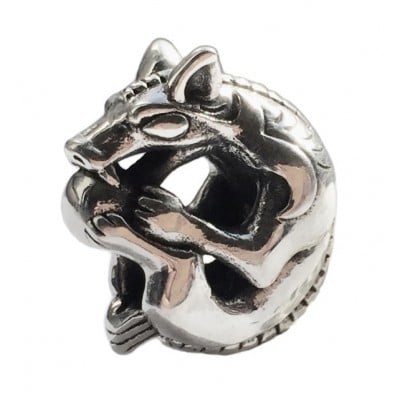
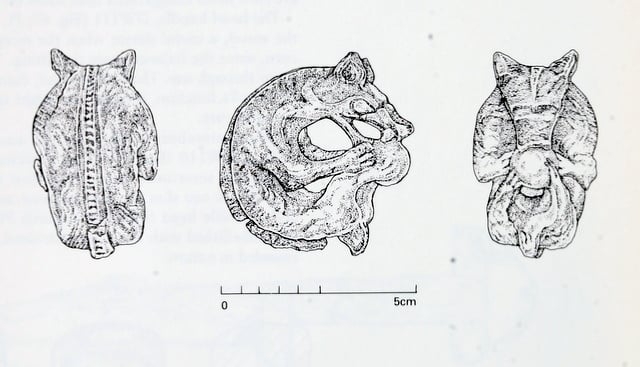
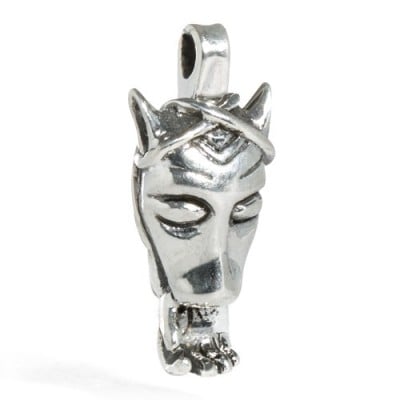
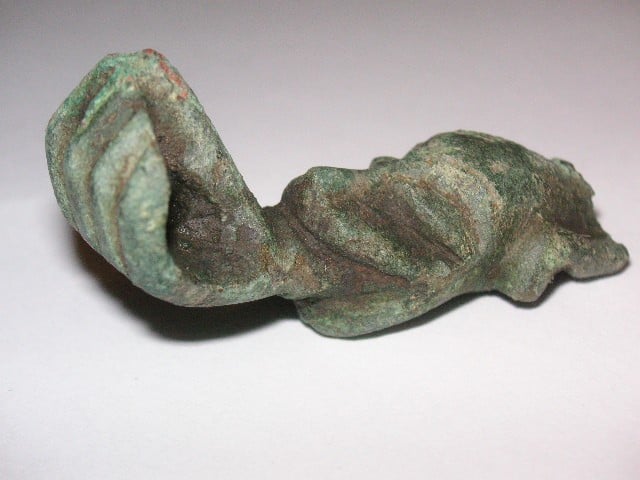
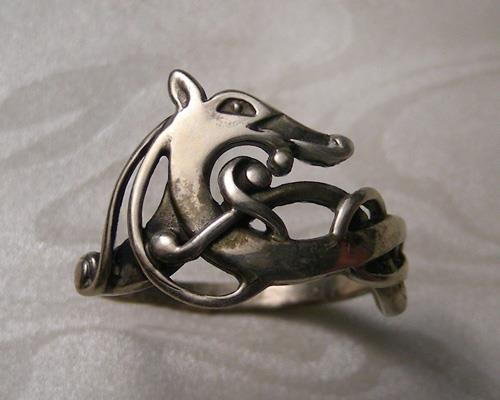
Fenrir in Modern Times: Depictions in Pop Culture
As with many Norse mythology characters, Fenrir features heavily in pop culture of both old as well as recent times. Numerous songs have been inspired by his tale, and the powerful descriptions of his character in the sagas have sprouted a huge amount of Fenrir-inspired art as well.
Fenrir in Modern Music
The Old Norse myths have recently begun to feature in modern music more and more, not the least because of tv shows such as Vikings and The Last Kingdom (that feature many of these songs).
Here are a few songs that were inspired by the tales of Fenrir:
Wardruna – Völuspa
Norwegian band Wardruna is definitely one of the better modern bands at making Old Norse-inspired folk music, many of which were featured in the Vikings TV show.
They often sing about stories in the Old Norse sagas, such as the Völsunga saga (a.k.a. Völuspa) in this case.
Here are the lyrics, translated into English:
Quietly I pray everyone
holy sheep
more and less
may Heimdallar
do you want me, Valfaðr?
well for counting
ancient chat fira
they are primarily too many
A year was centuries
it is not was
was sand nor hurt
nor swallows won
earth felt alive
nor heaven
gap was ginnunga
but grass nowhere
The sun darkens
win fold in mar
disappear from the sky
bright stars
rages on
and older
game high temperature
by the sky itself
Brothers will fight
and at banum būdask
will sisters
let’s spoil
The terror of Yggdrasil
askr standing
like the old tree
but the manger comes loose
Now doing Garmr a lot
for Gnipahelli
fixed will wear
but rather slide
I know how to teach
I look forward
about raging arguments
frame of a sieve
She sees it coming
another time
earth or earth
industrial green
fall forces
an eagle flies over
that one is on a mountain
fish catches
Sal sees her standing
the sun is more beautiful
covered in gold
on Gimlé
there shall be virtues
doctors build
and about old age
enjoy
Wardruna – Grá
Grá is another Wardruna song that features the wolves of the Old Norse world:
Here are the lyrics, translated into English:
Old Grey
I remember the ring before it broke
Your song touches me deeply,
like reins straight from my drag
I can’t find words, they are hidden from me,
but it is something old, it is something forgotten
I remember when you hunt freely
I remember when we hunt together
I remember us, before the road parted
I remember the ring before it broke
Always on me, and I on you
Always was on you, and you on me
Just run, to my forests
Just chase, in my mountains
Lead your flock to my valleys
Let’s make the ring whole
I’ll sing your way, hello
I’m going to sing home, hello
SKÁLD – Gleipnir
The excellent Icelandic band Skáld made this song to describe the mythological Gleipnir; the magical chain that bound Fenrir down.
Here are the lyrics, translated into English:
Of the cat’s skin
And of the woman’s beard
And from the roots of the rock
Yoke of the sinews of the bear
Yoke of the spirit of the fish
And from a bird’s spit
My name is Gleipnir
Of the cat’s skin
And of the woman’s beard
And from the roots of the rock
Yoke of the sinews of the bear
Yoke of the spirit of the fish
And from a bird’s spit
My name is Gleipnir
No one wanted to sell their hand earlier
But Týr held out his right hand
No one wanted to sell their hand earlier
But Týr held out his right hand
No one wanted to sell their hand earlier
But Týr held out his right hand
No one wanted to sell their hand earlier
But Týr held out his right hand
Of the cat’s skin
And of the woman’s beard
And from the roots of the rock
Yoke of the sinews of the bear
Yoke of the spirit of the fish
And from a bird’s spit
My name is Gleipnir
Of the cat’s skin
And of the woman’s beard
And from the roots of the rock
Yoke of the sinews of the bear
Yoke of the spirit of the fish
And from a bird’s spit
My name is Gleipnir
Of the cat’s skin
And of the woman’s beard
And from the roots of the rock
Yoke of the sinews of the bear
Yoke of the spirit of the fish
And from a bird’s spit
My name is Gleipnir
Of the cat’s skin
And of the woman’s beard
And from the roots of the rock
Yoke of the sinews of the bear
Yoke of the spirit of the fish
And from a bird’s spit
My name is Gleipnir
Of the cat’s skin
And of the woman’s beard
And from the roots of the rock
Yoke of the sinews of the bear
Yoke of the spirit of the fish
And from a bird’s spit
My name is Gleipnir
He howls viciously
And drool ran from his mouth
It’s on the one that’s called ván
There he lies, until Ragnarök
Baltazzar – Fenrir
Samplifire – Fenrir
Here is a Riddim-style (a very hard-hitting dance music genre) tribute to Fenrir, definitely meant for the clubs and big speaker systems.
Brothers of Metal – Chain Breaker
Brothers of Metal – Prophecy of Ragnarök
Wrath of Fenrir – Wrath of Fenrir
So It Begins – Fenrir
Let Them Fall – Fenrir
Fenrir – Fenrir
Fenrir in the Marvel Universe
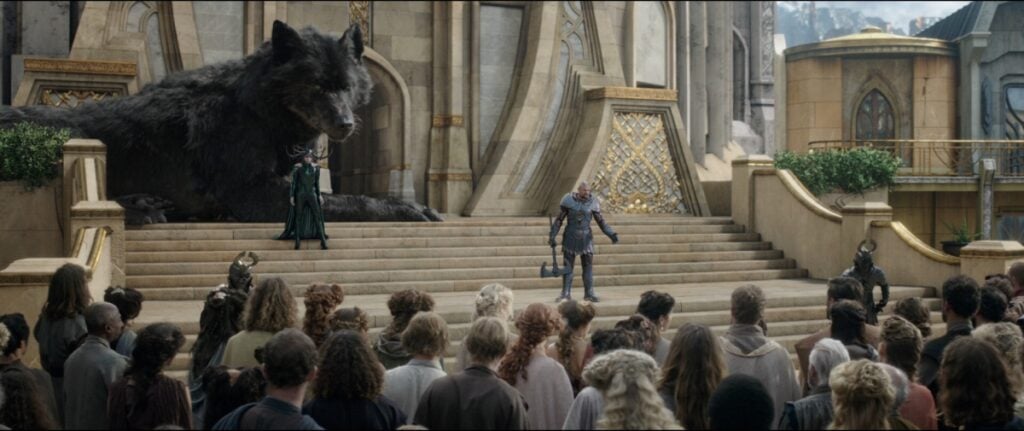
In the Marvel Universe, Fenris was a giant Wolf from Asgard, who served Hela as Asgard expanded around the Nine Realms. After her death, Fenris was resurrected by Hela with the Eternal Flame, only to later fall into a void while battling the Hulk.
Here is the footage featuring the Hulk vs. Fenrir in Thor: Ragnarök (2017) (warning: includes movie spoilers):
Fenrir in the Game Assassin’s Creed: Valhalla (2020)
Fenrir also features in Assassin’s Creed: Valhalla, as we can see in this gameplay video (which contains game spoilers):
Fenrir in the Game God of War (2018)
In the 2018 iteration of God of War, Fenrir is alluded to multiple times in dialogue, though the protagonists never see the actual wolf.
In the game, Mimir refers to him as “a great nemesis of the Aesir Gods”.
Fenrir, Skoll, and Hati in the Game God of War: Ragnarök (2022)
Both Fenrir and his sons Sköll and Hati feature heavily in the gameplay for the game God of War: Ragnarök (2022), likely both as antagonists and protagonists.
Here is an interesting video featuring Old Norse specialist Jackson Crawford (who used to teach Norse mythology at my alma mater UC Berkeley), explaining how the gameplay relates to the Old Norse source material:
Crawford was hired by the God of War developers as a consultant in regard to the game’s approach to Norse mythology, and although he specializes in the linguistics of Old Norse, he certainly has a good grasp on the primary sources (such as the “Eddas”).
Here is another video where he reacts to the God of War trailer:
If you want nothing but the gameplay, here’s the first scene which showed Fenrir as an enemy to Kratos and Atreus:
A later trailer also suggests that Fenrir and his sons will collaborate on the side of the protagonists in the story:
The game visualizes the events of Ragnarök in a creative and interesting way, and I especially like how the wolves eating the sun is depicted (towards the end of the trailer).
Fenrir in ARK: Survival Evolved (2015)
Sources:
https://www.diva-portal.org/smash/get/diva2:1615516/FULLTEXT01.pdf
https://tb.kulturhotell.se/items/show/65307
https://books.google.com/books?id=tnsHjwEACAAJ
https://books.google.com/books?id=huC2DwAAQBAJ
 Skaði: Norse Goddess of Winter, Mountains & Hunting
Skaði: Norse Goddess of Winter, Mountains & Hunting Viking Music: What Instruments Did the Vikings Play? (Examples)
Viking Music: What Instruments Did the Vikings Play? (Examples) 23 Unwritten Rules According to a Swede (What NOT To Do in Sweden)
23 Unwritten Rules According to a Swede (What NOT To Do in Sweden) Viking Age Hairstyles & Beards: Historical & Modern Takes
Viking Age Hairstyles & Beards: Historical & Modern Takes

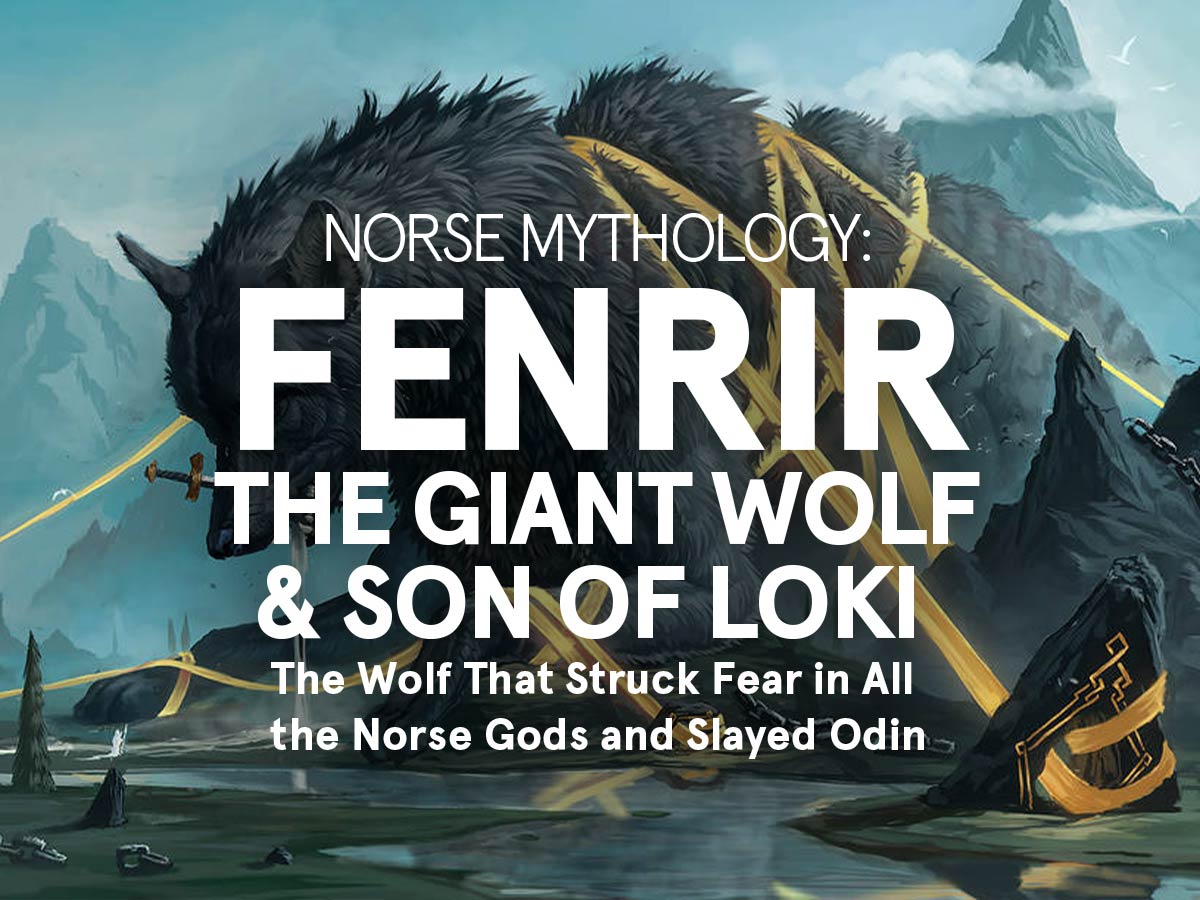

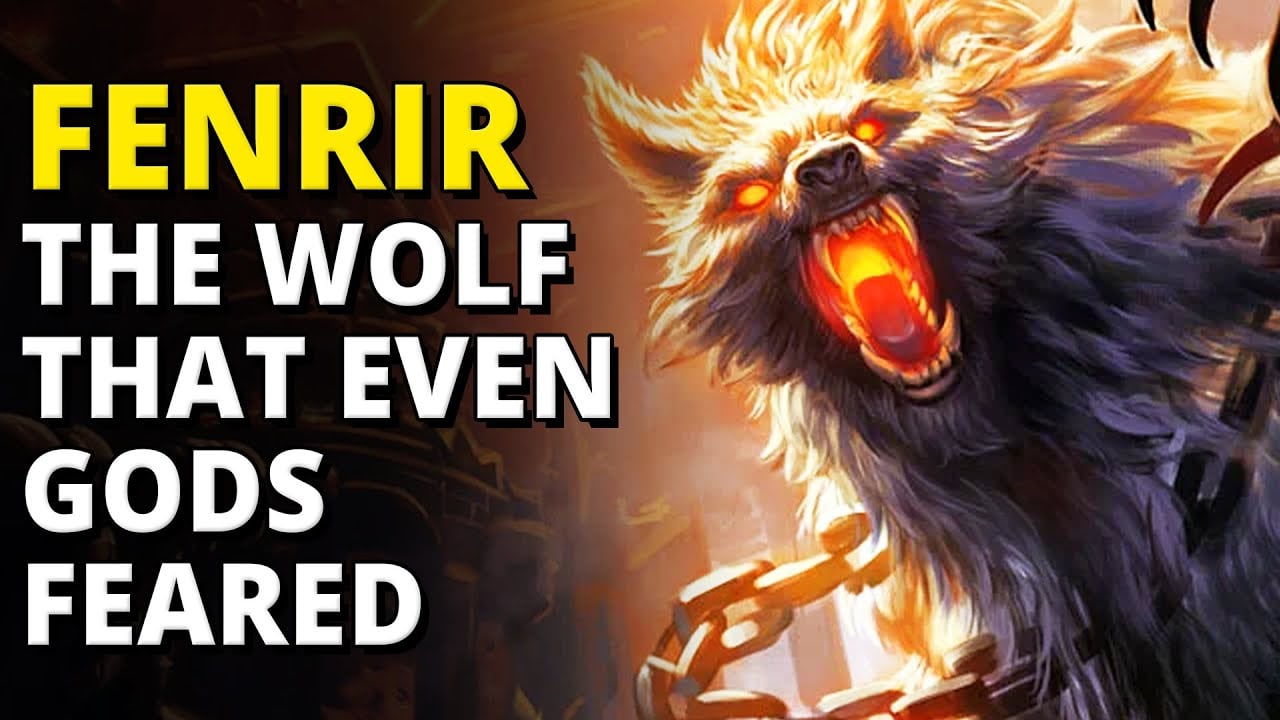

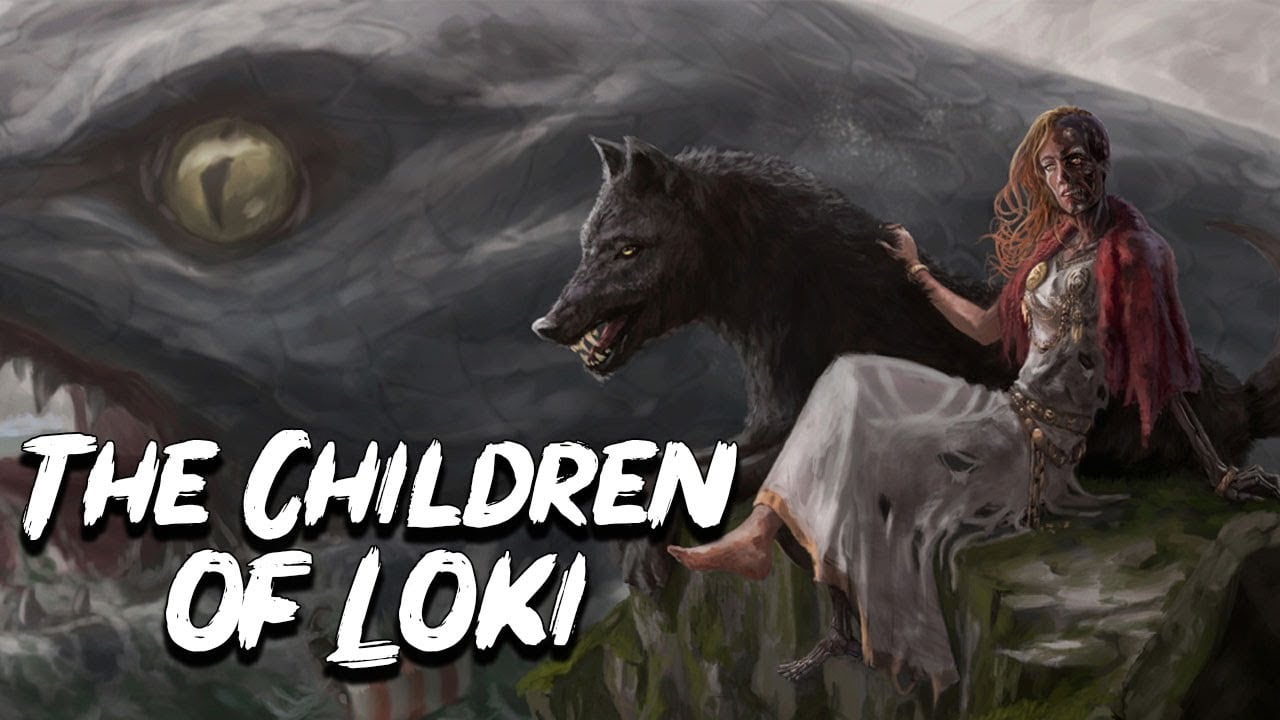
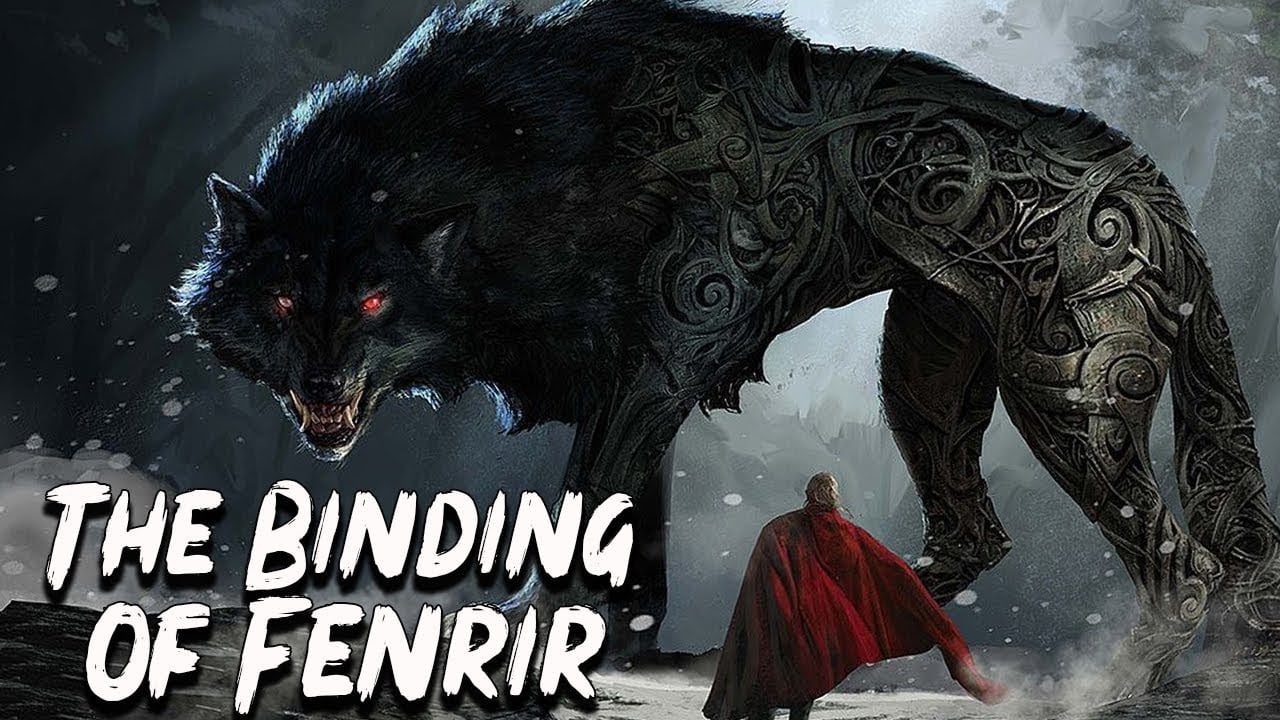
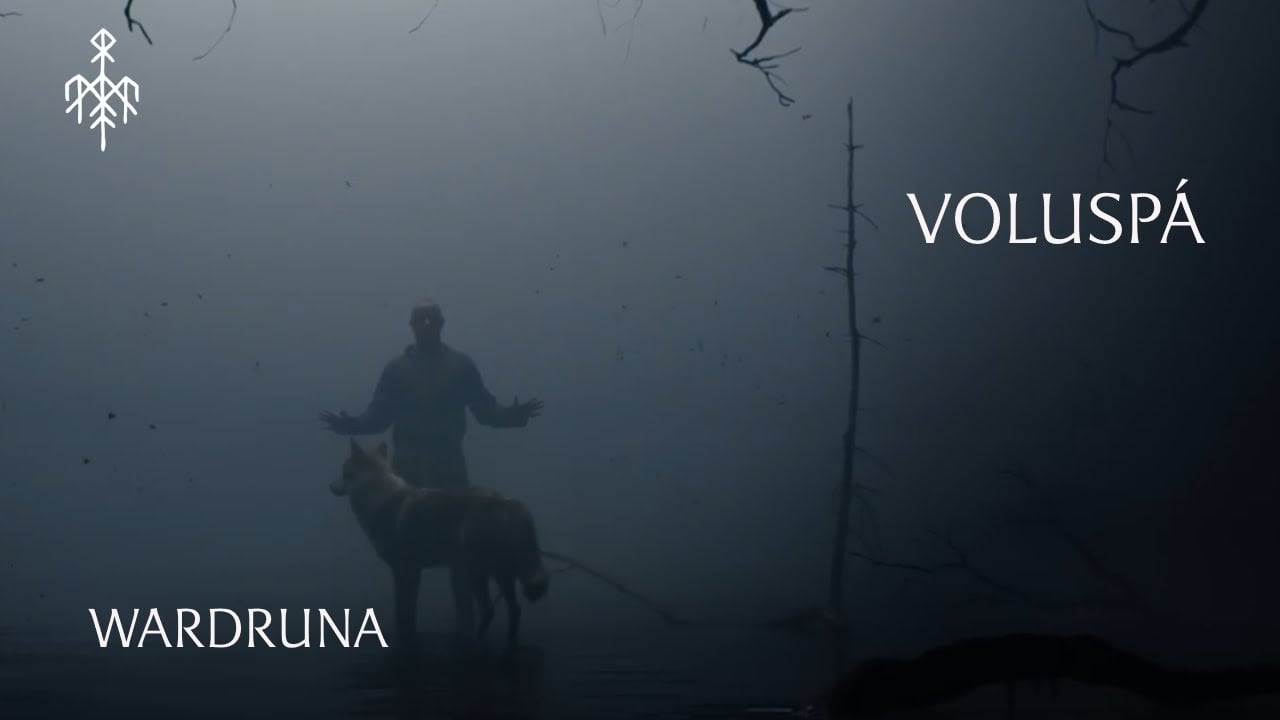
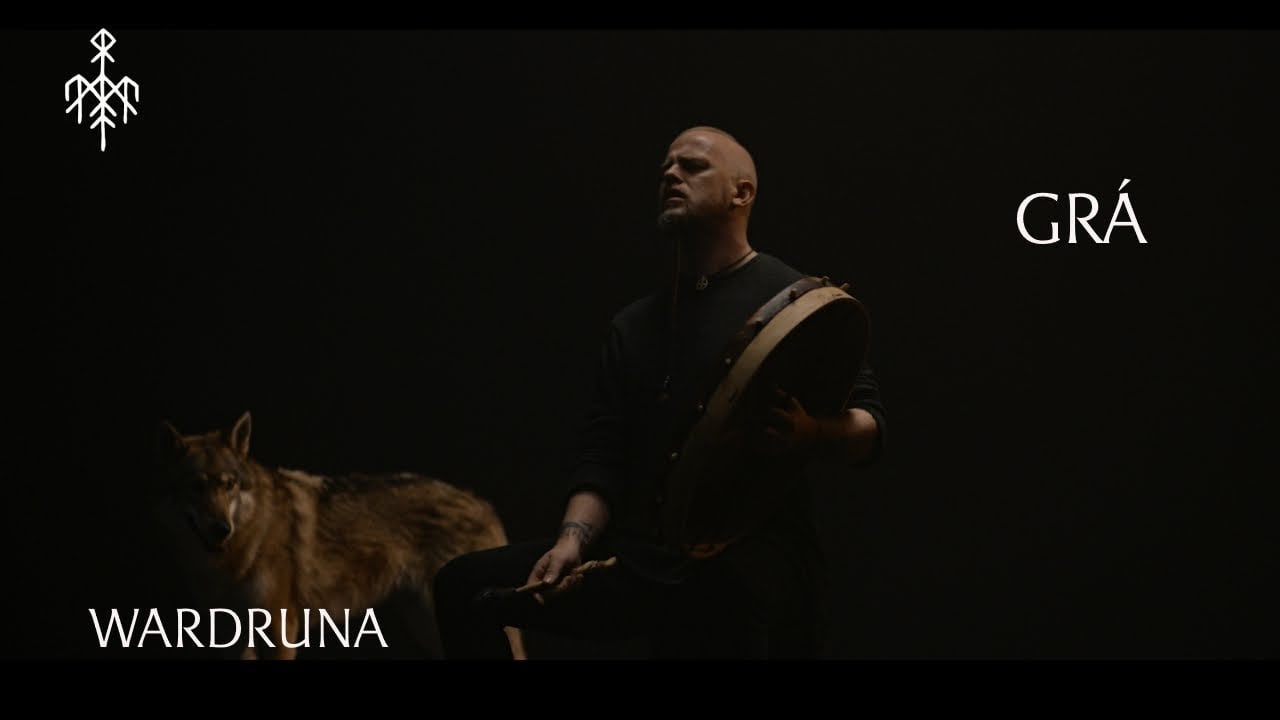
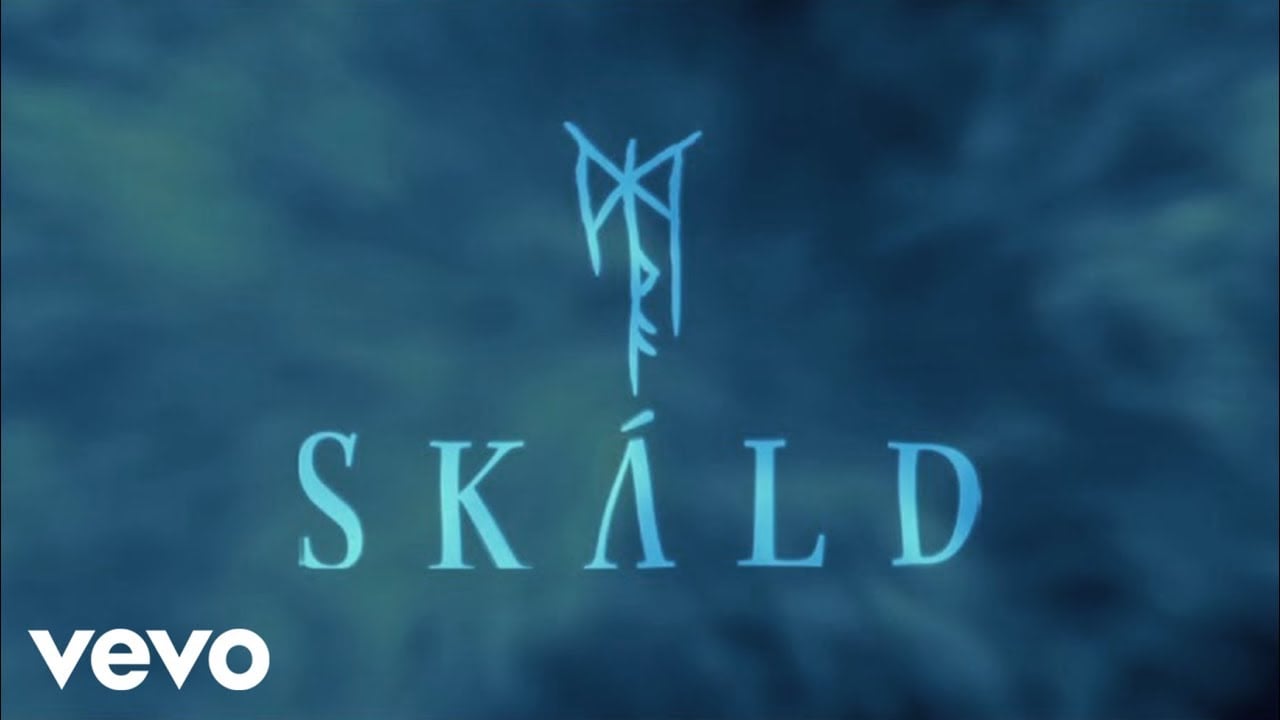
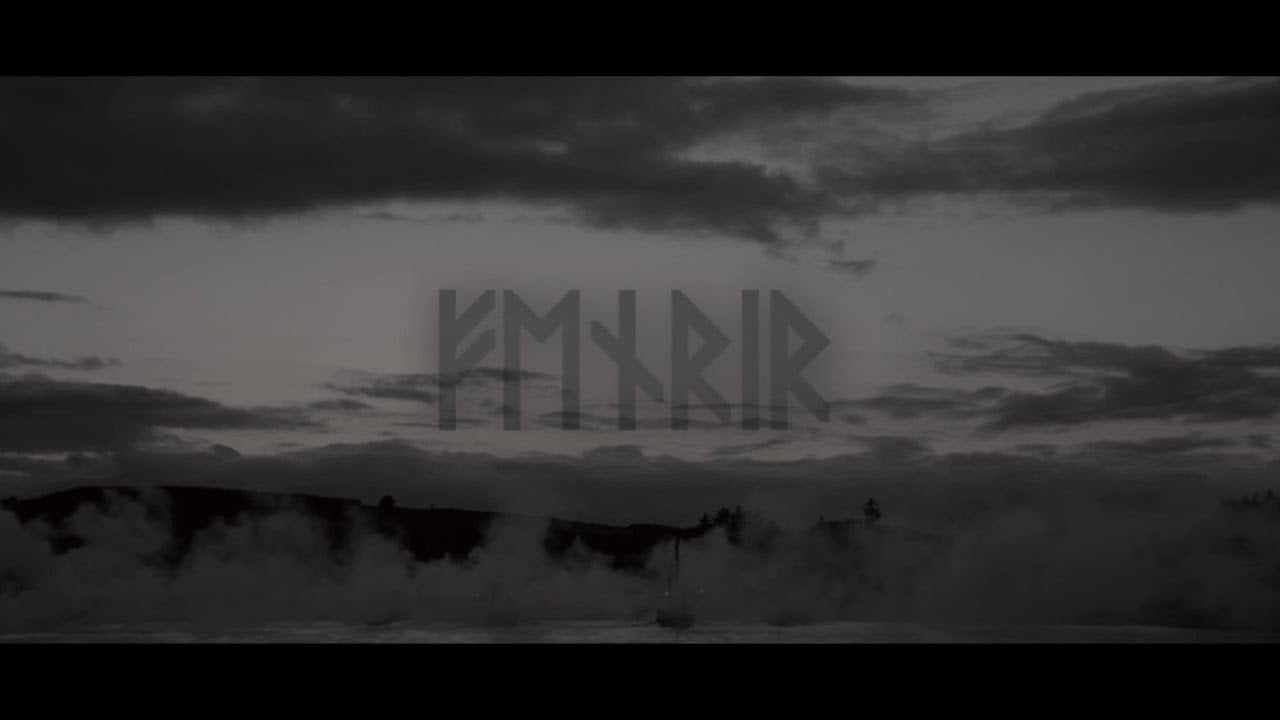
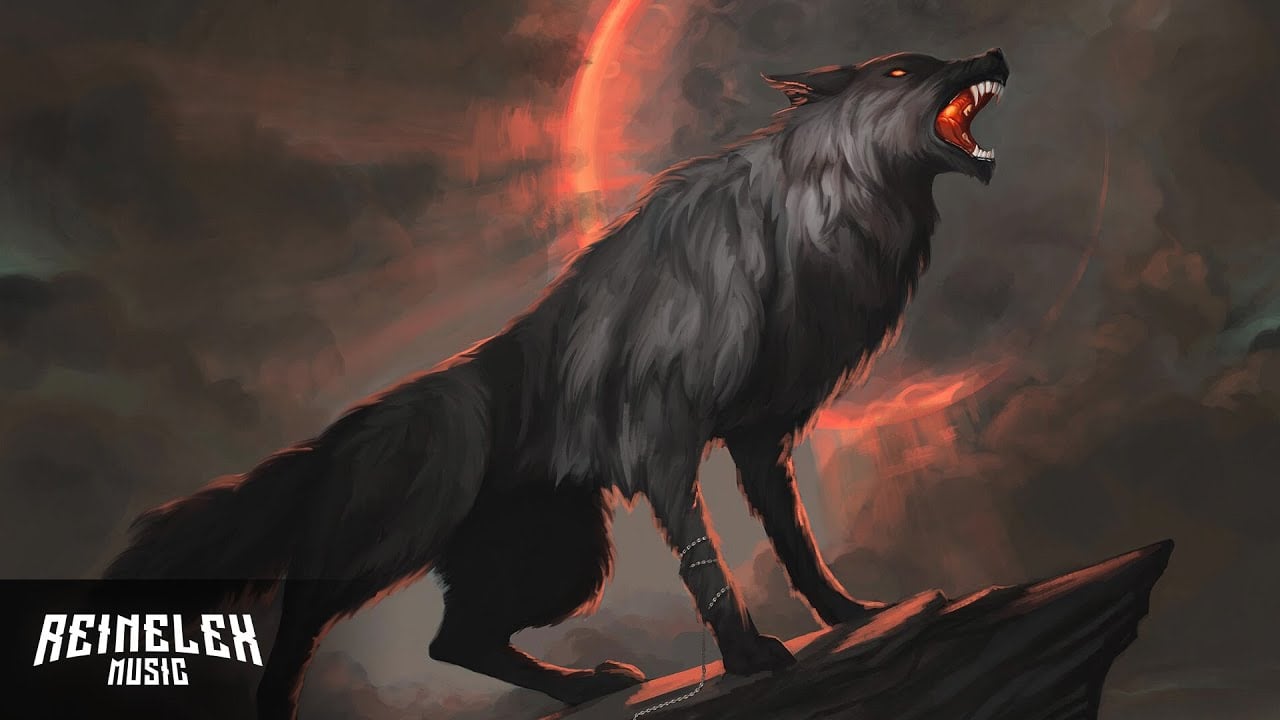
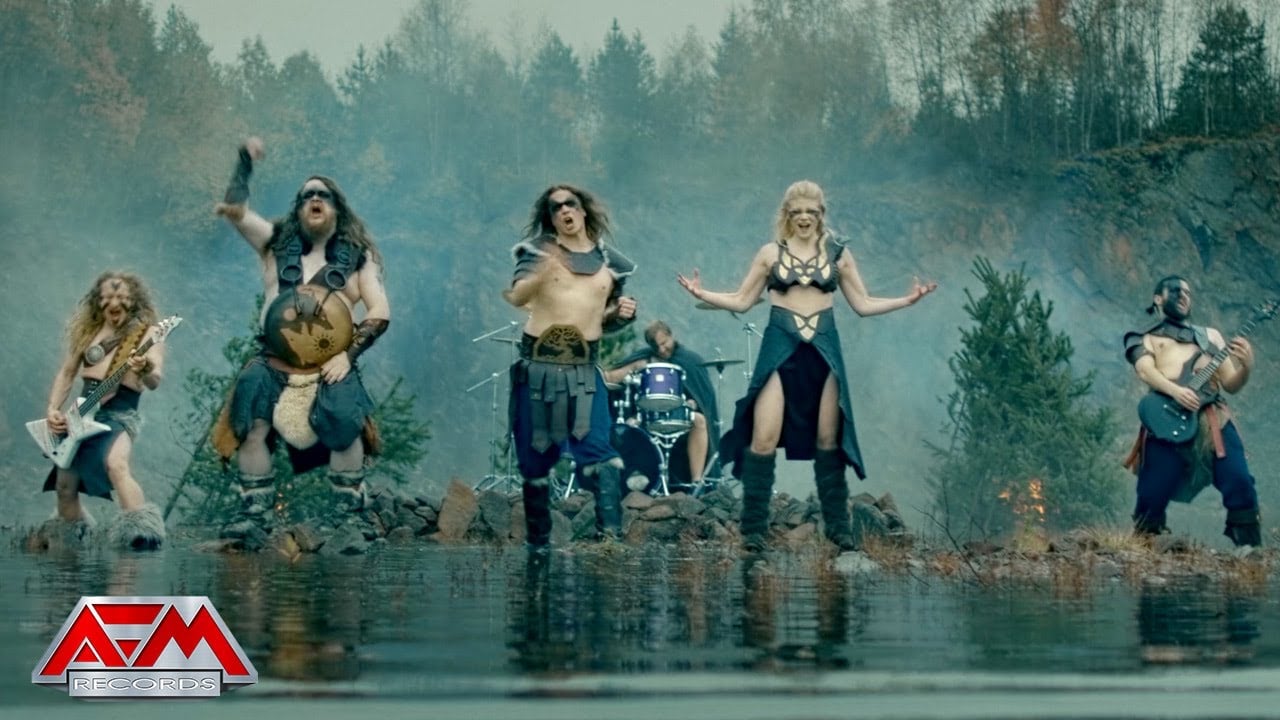
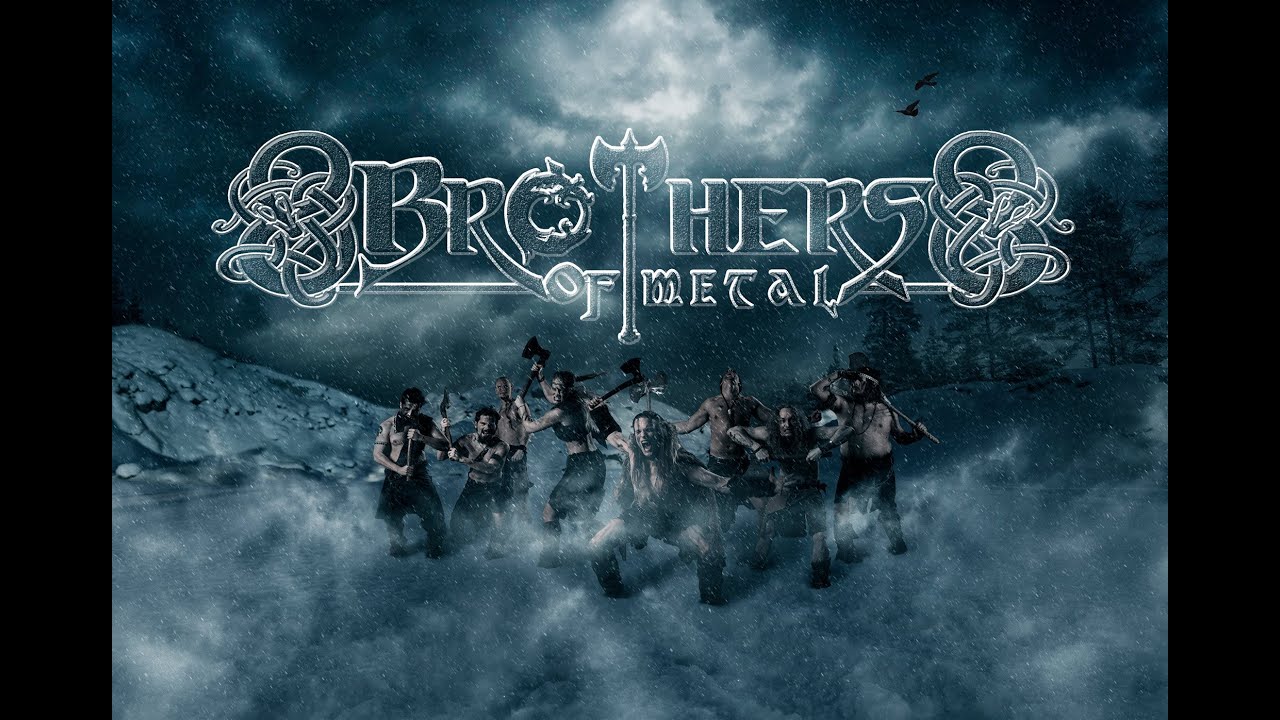
![Wrath of Fenrir - Wrath of Fenrir [Official Lyric Video]](https://nordicperspective.com/wp-content/cache/flying-press/7c55ed163e2a243ae040455ea615578a.jpg)
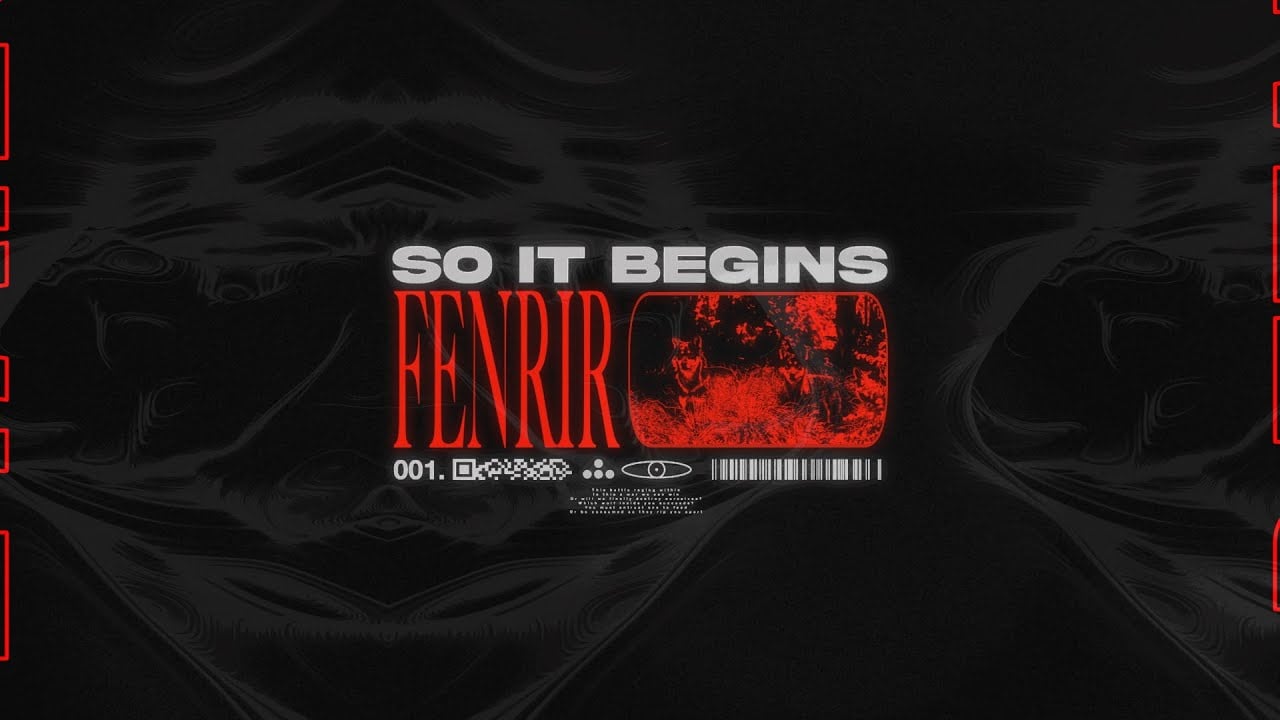
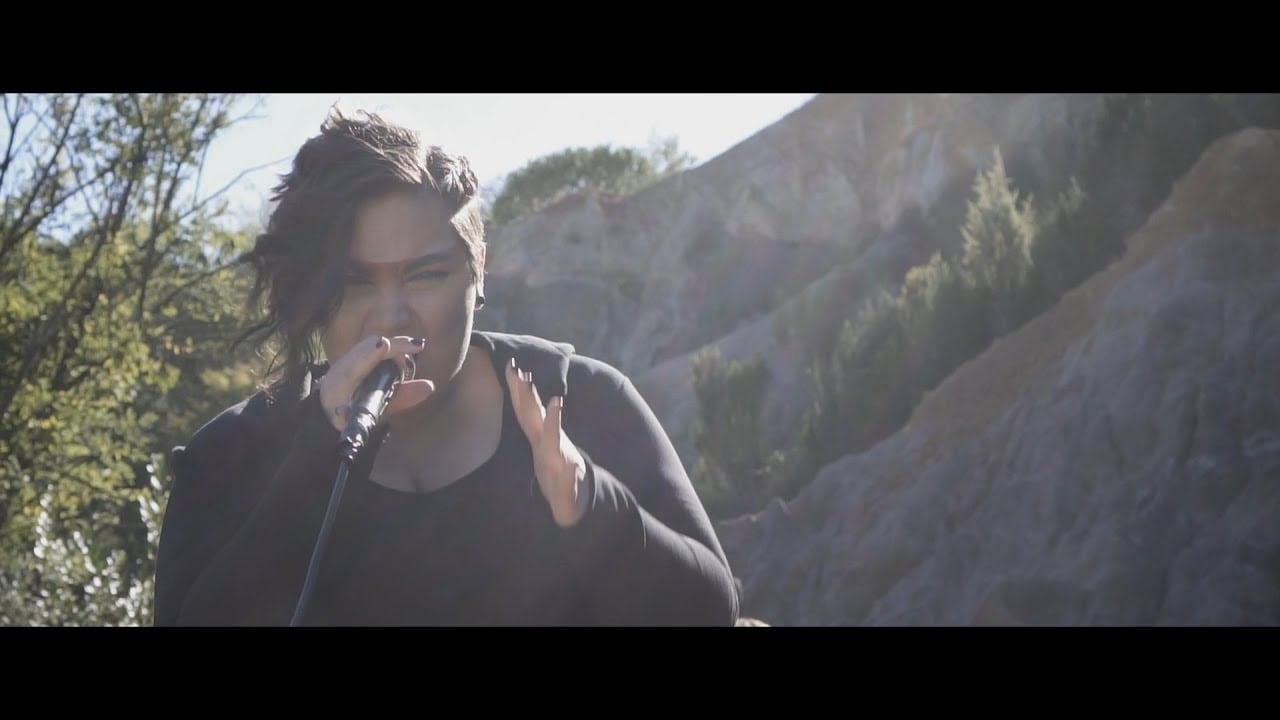
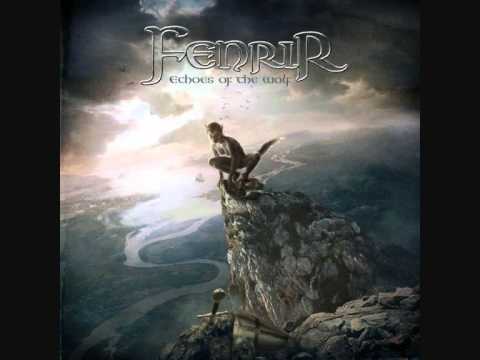
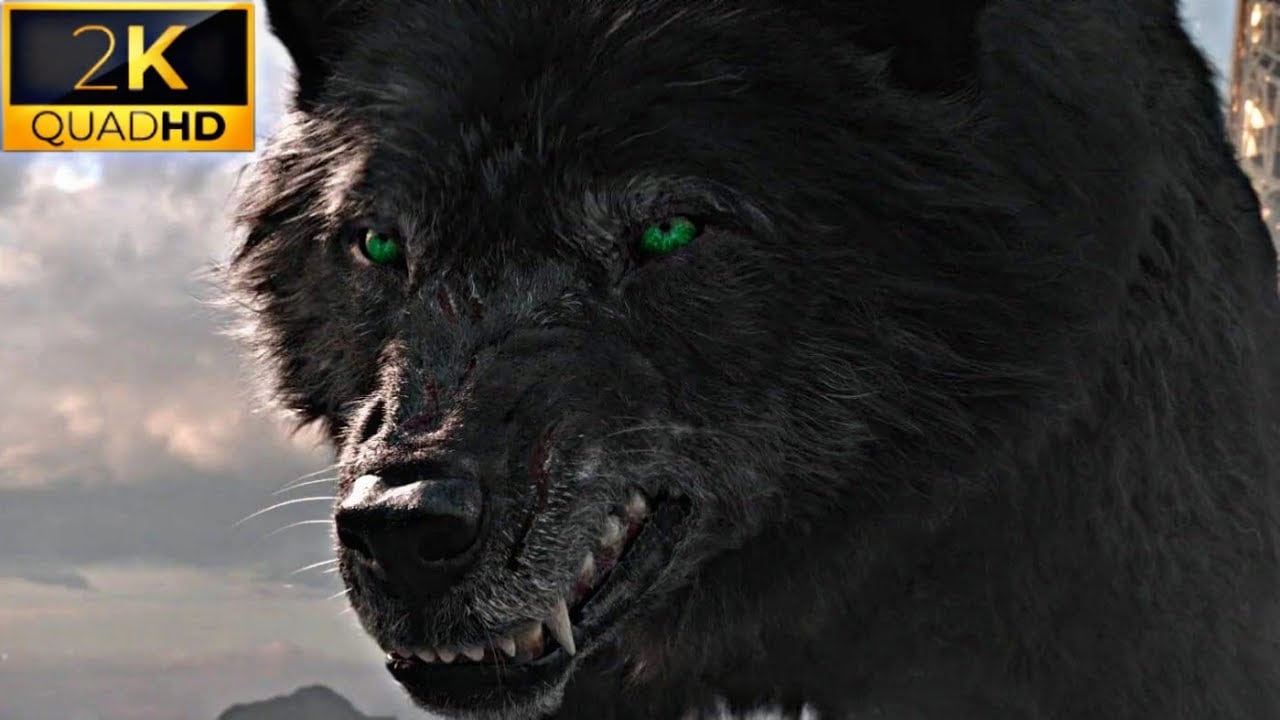
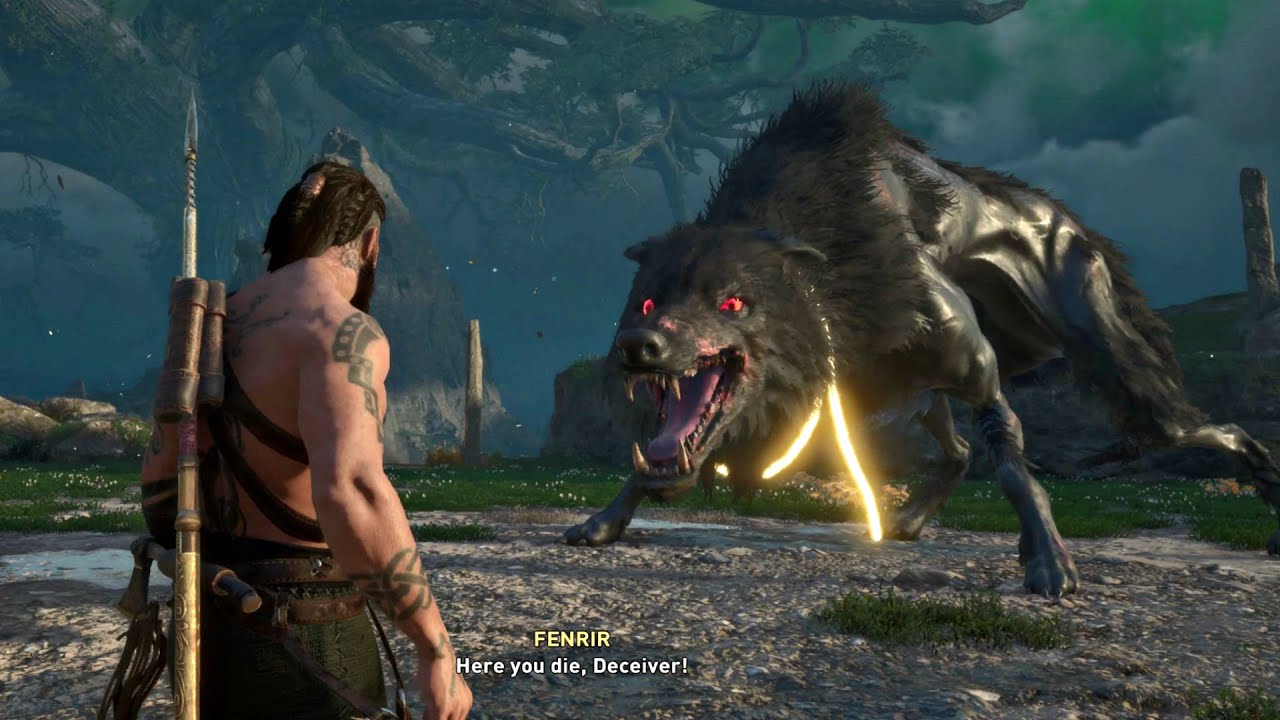
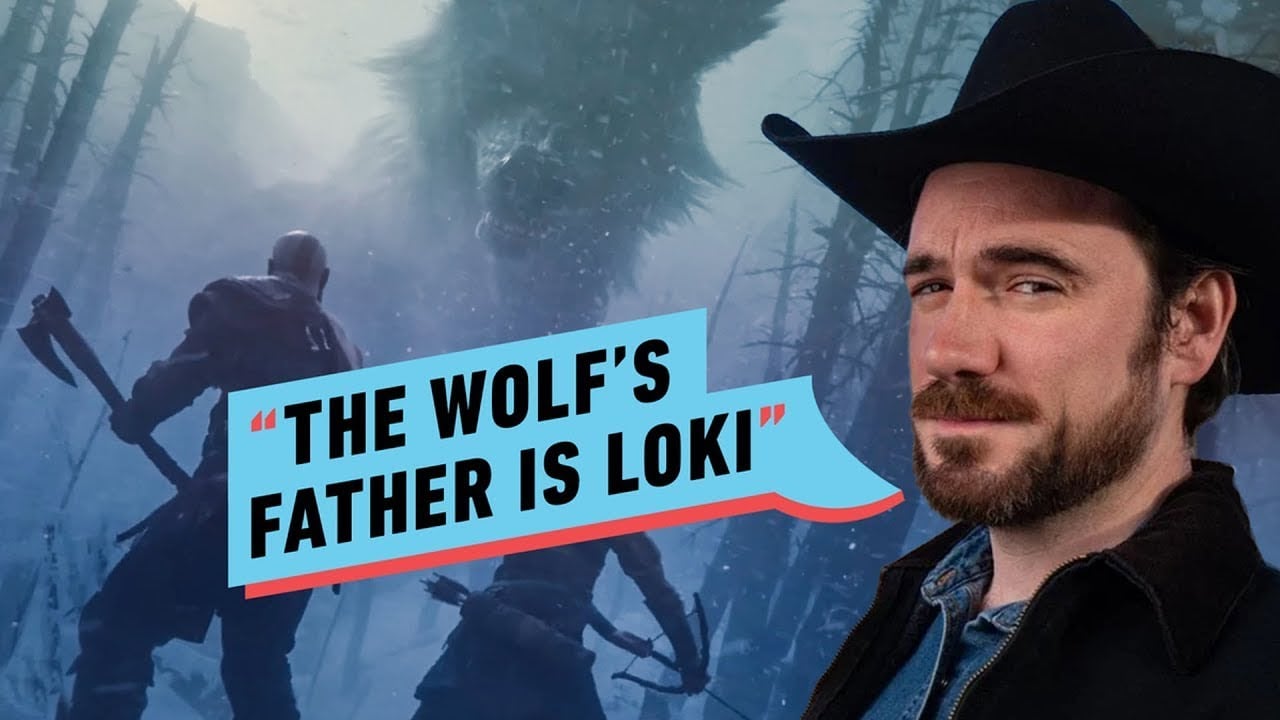
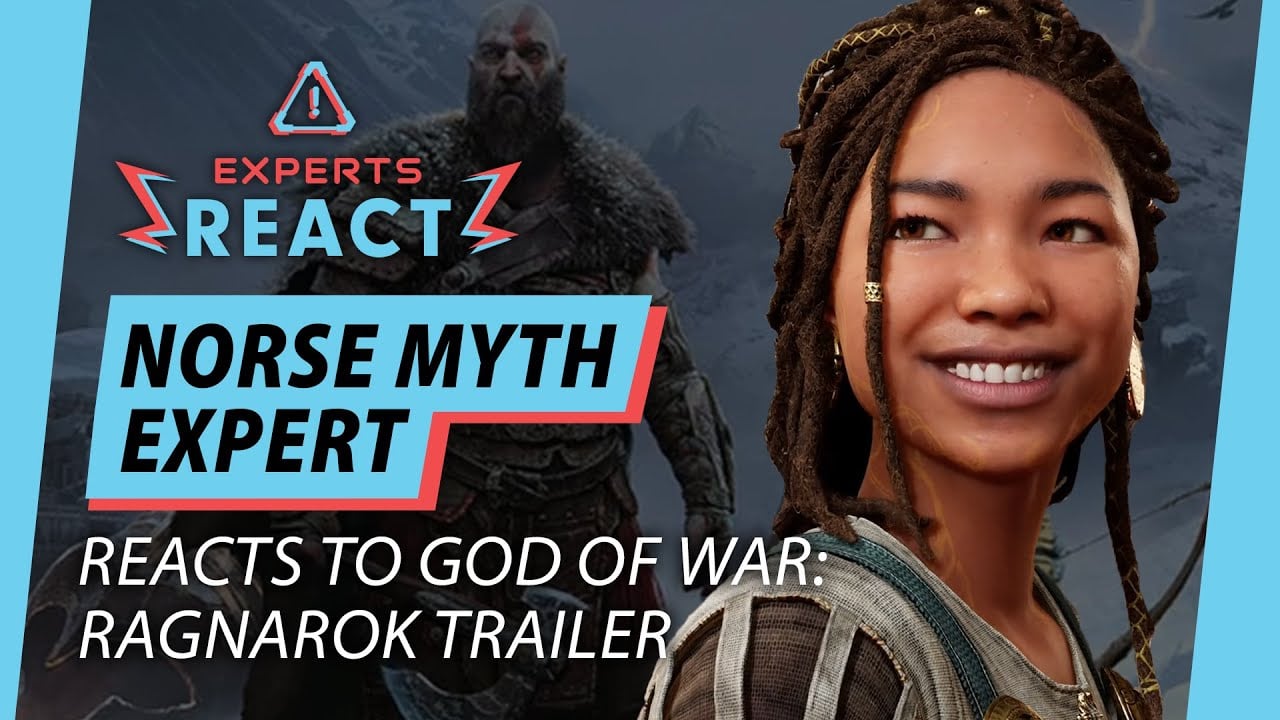
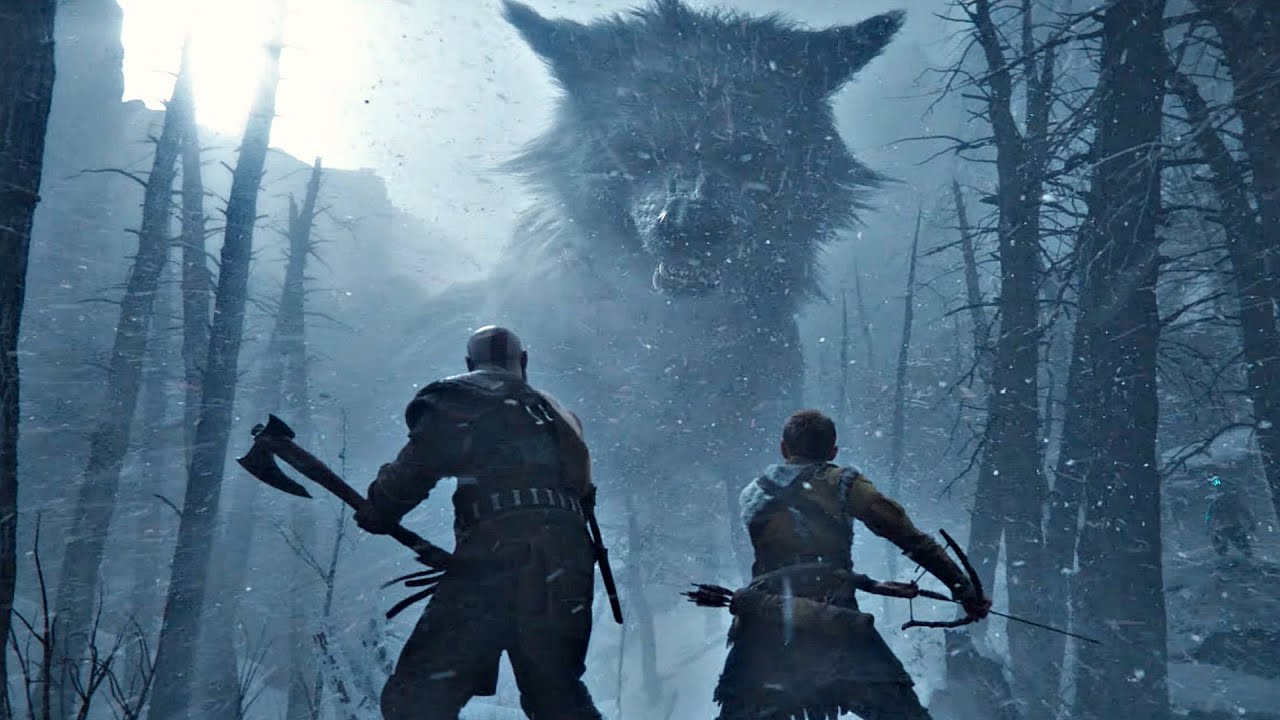
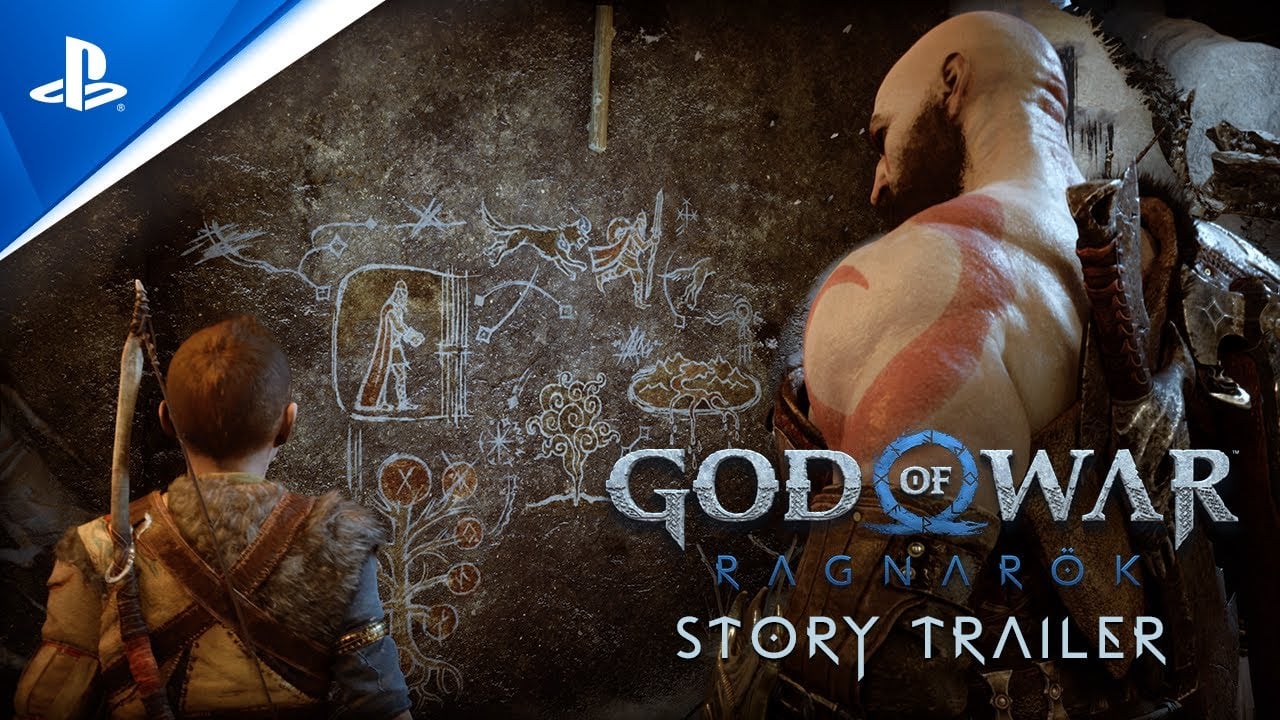
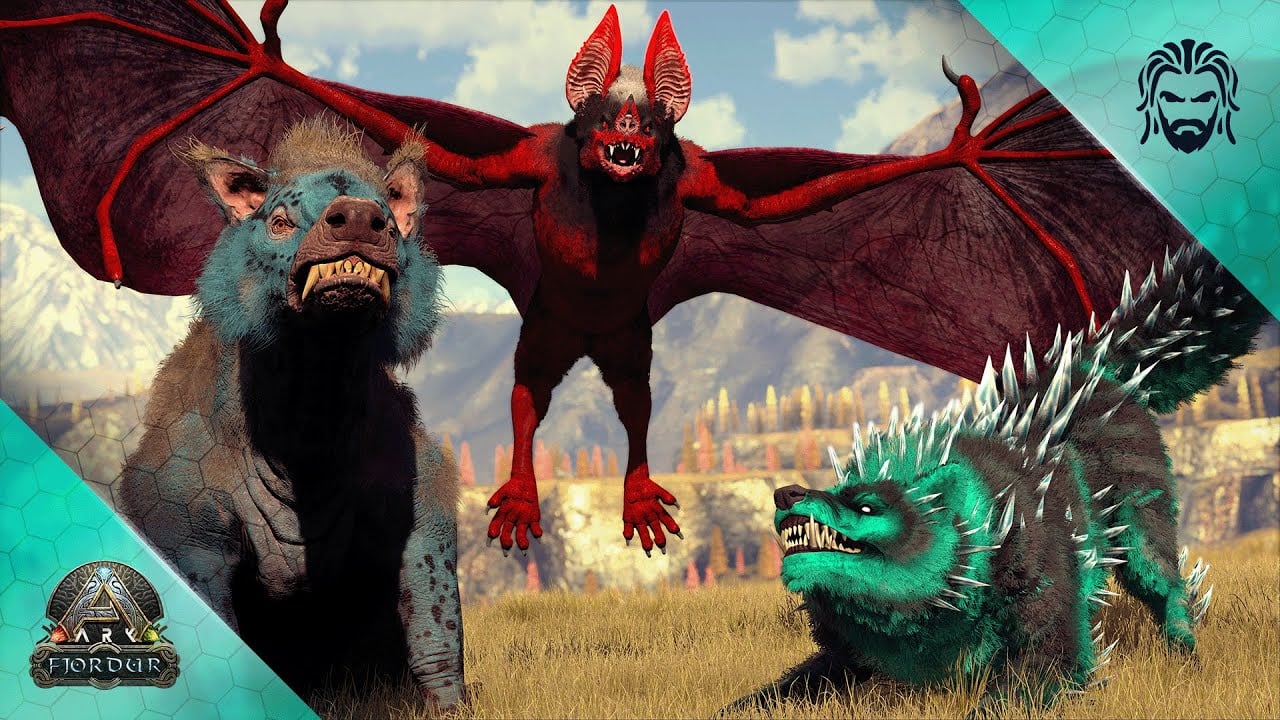
I am very interested in vegvisir. What do all the symbols mean and where do they go